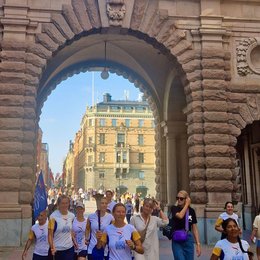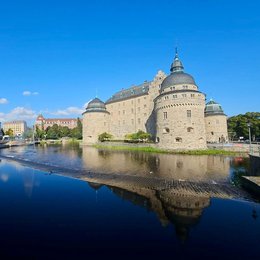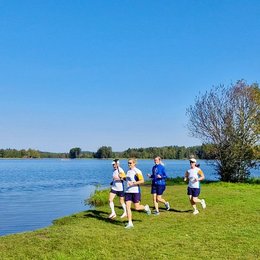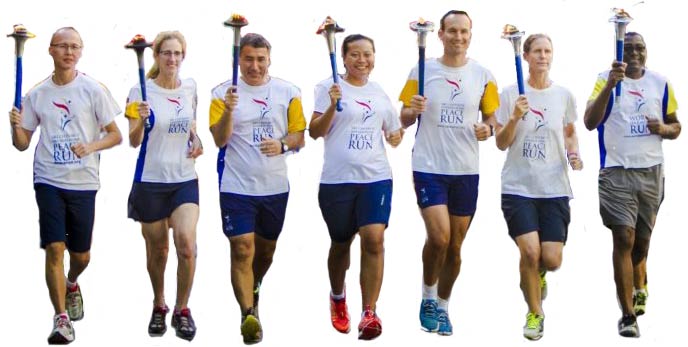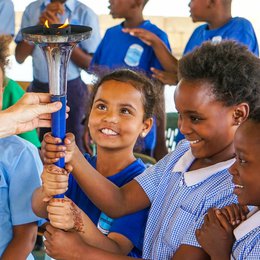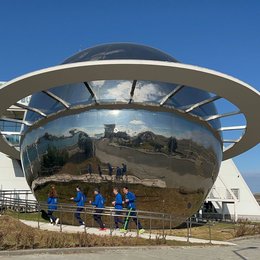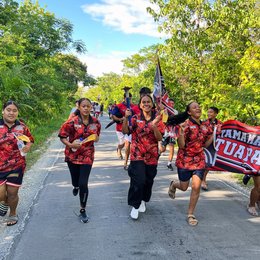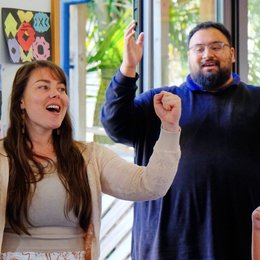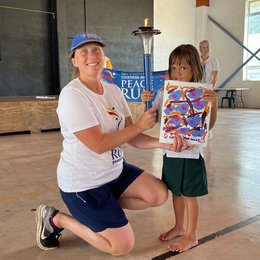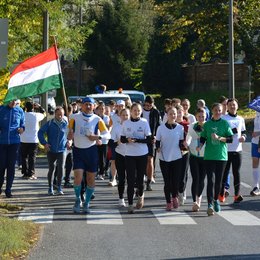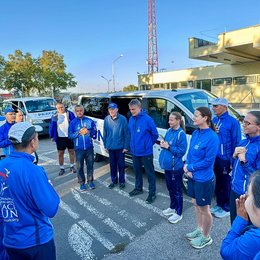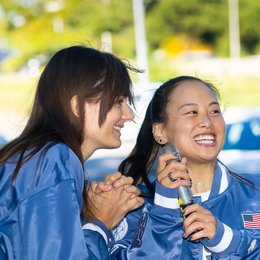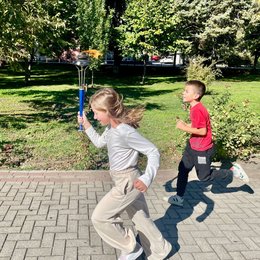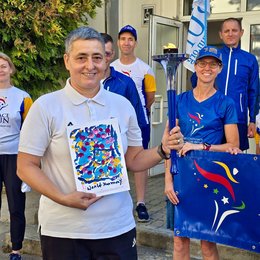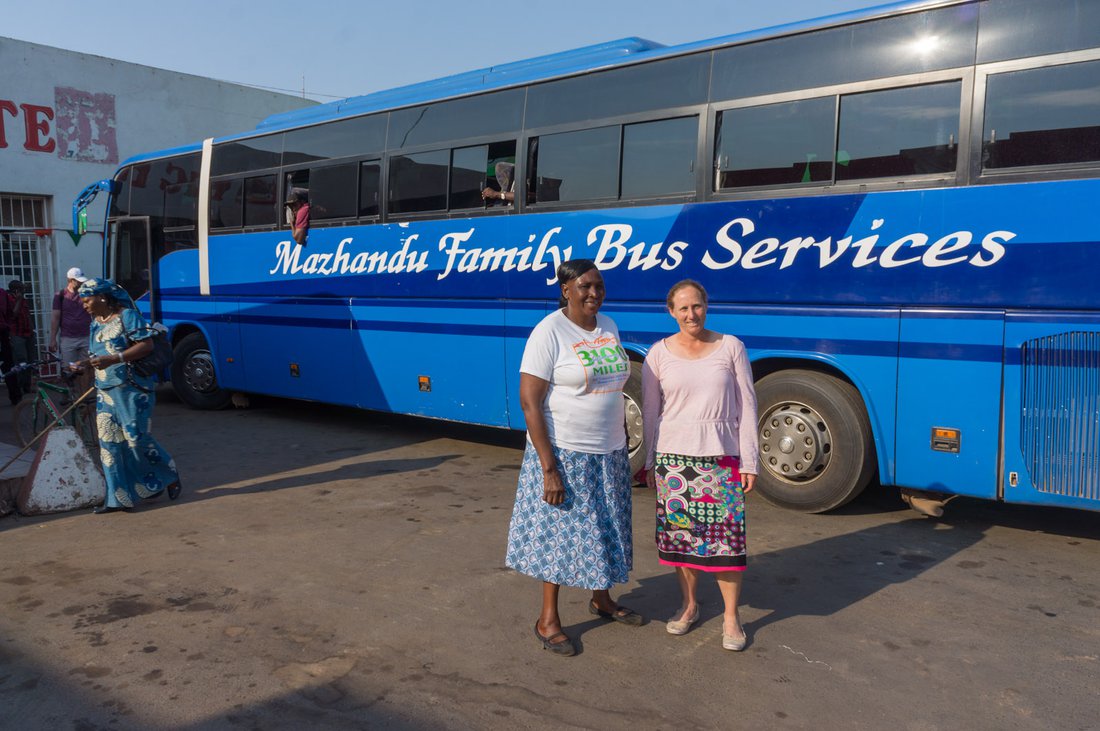
The team’s last big overland travel started today. We were all up before 5am getting everything ready for our 5.30am bus to Kapiri Mposhi, where would catch the TAZARA train to Dar-es-Salaam.
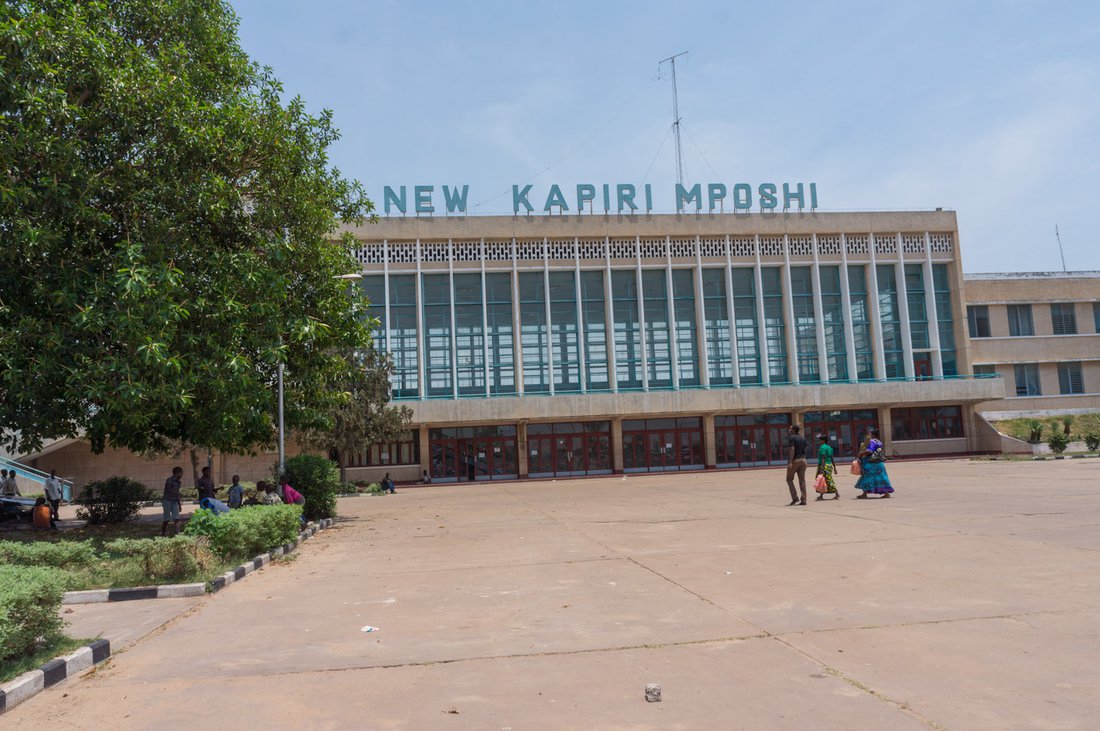
We arrived at the railway station with 4 ½ hours to wait before the train departure, but as the only way to secure tickets is to be there early, the team was happy to stay at the station for this extended time to ensure tickets for our 'first' class cabins.
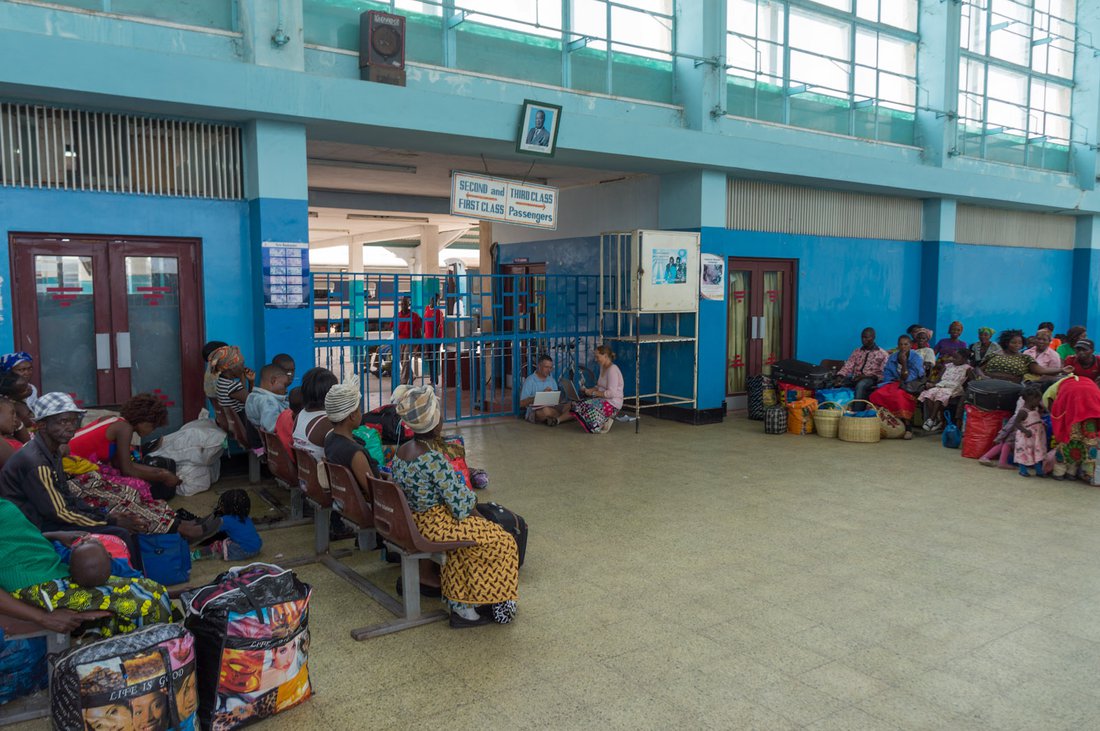
Back at the station we did find a power source so we were able to work on our reports and finalise some press releases.
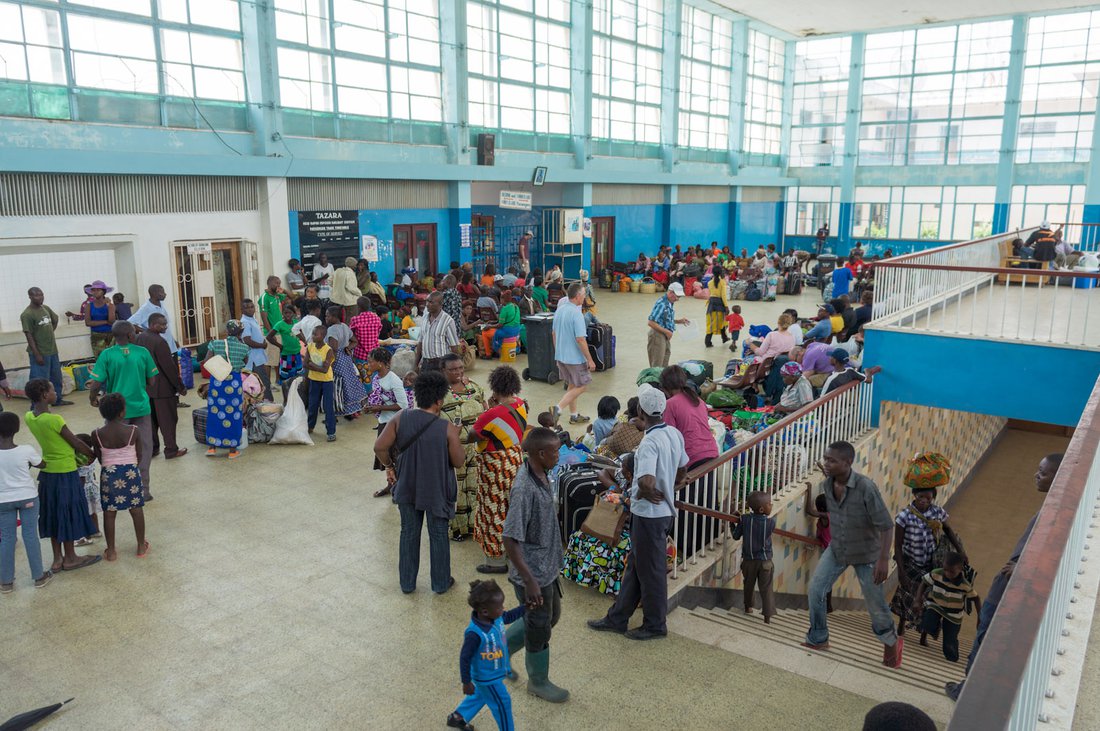
As the hours ticked by, the station filled up with a colourful array of second and third class passengers. As 2nd and 3rd class berth/ seat numbers cannot be booked, it was a first come first serve basis once the train arrived and there was a rush to form a queue before the gates were opened.
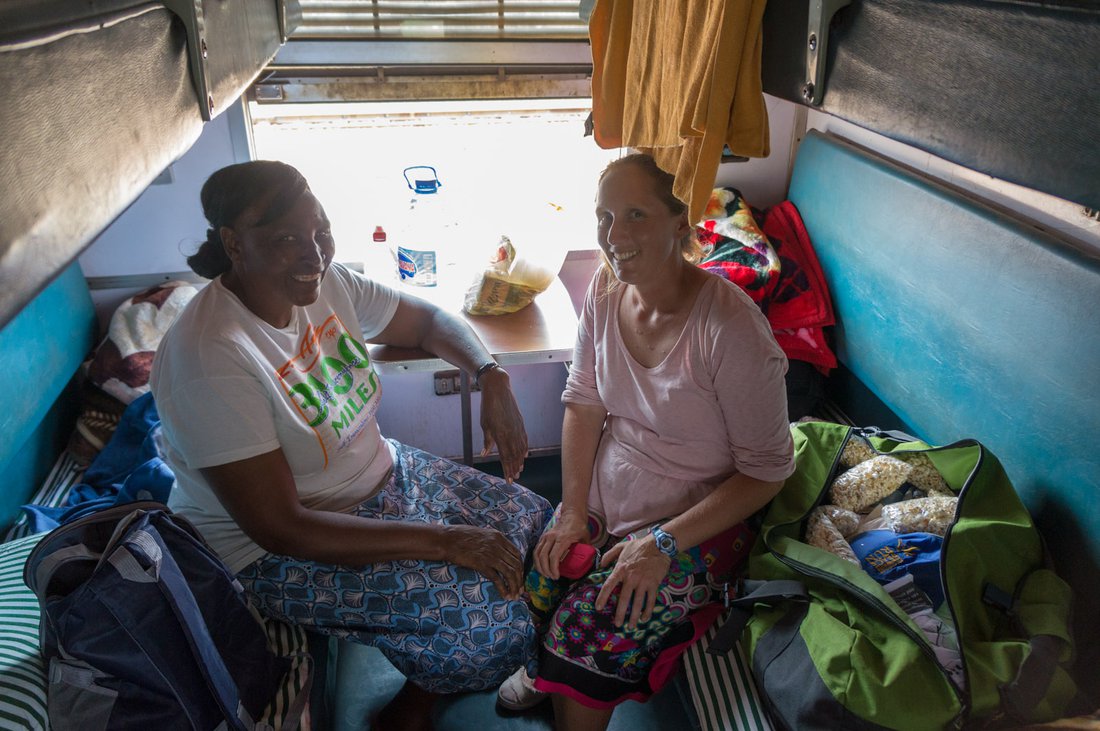
At exactly 14h00, our train got underway for the long 49 hour (or so we thought) journey to Dar es Salaam.
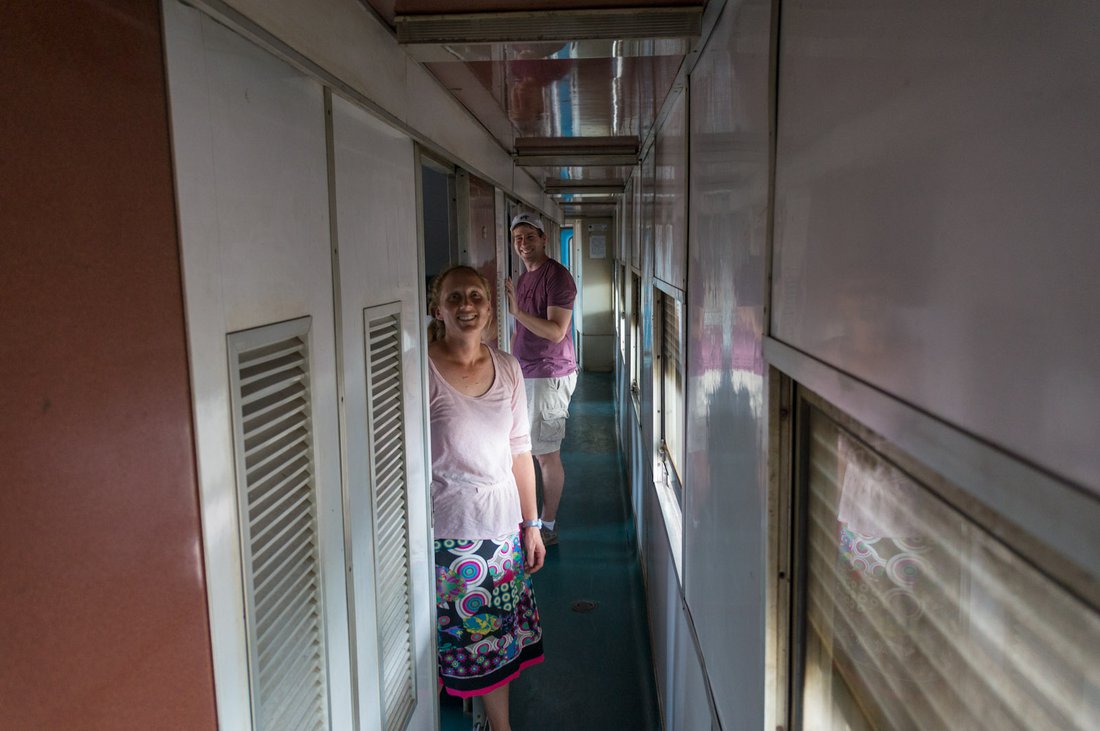
With our youthful interest and excitement in our new surroundings, we soon forgot about how far we still had to go.
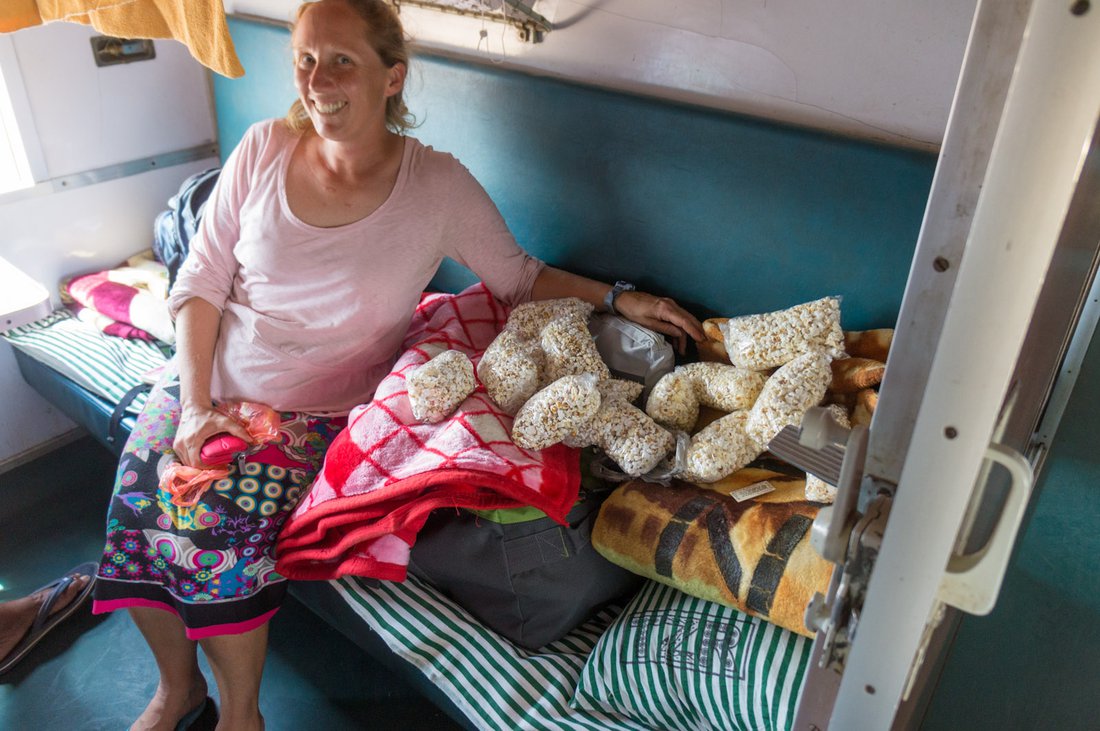
Not sure what food we would be able to buy on the train, Abhijatri bought some snacks - yes that is about 15 packets of popcorn!
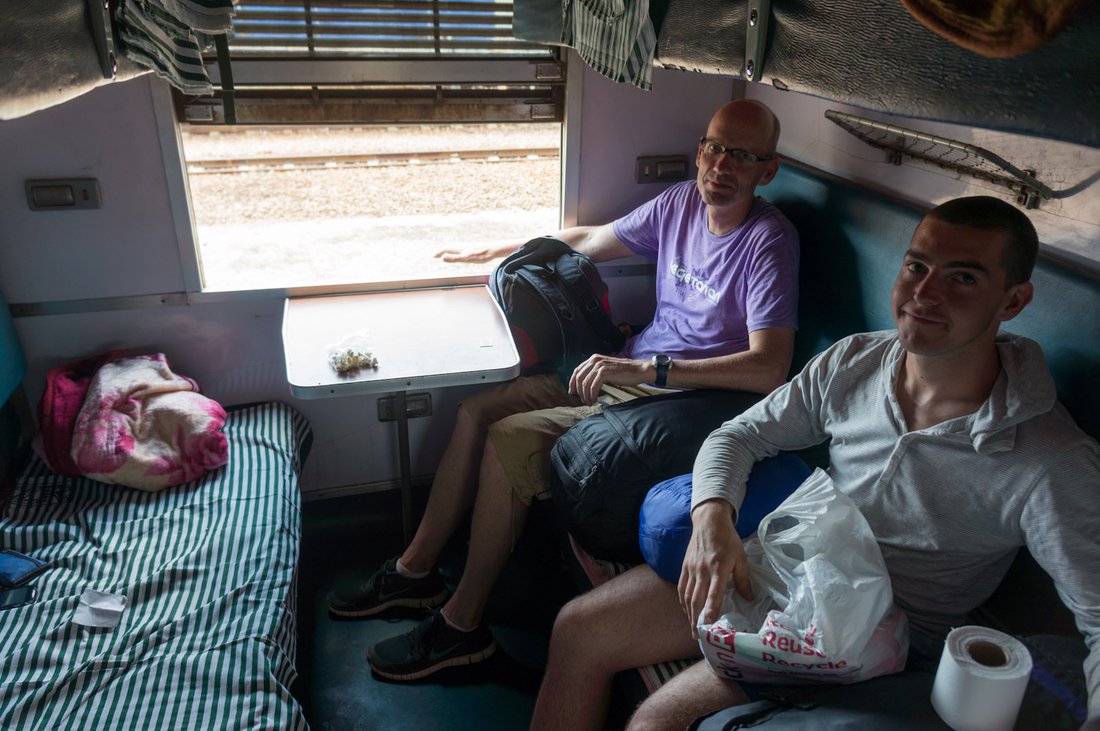
The cabins were small, but quite comfortable, and we were glad that we had opted for the train rather than the faster, but far less comfortable, alternative of taking a bus.
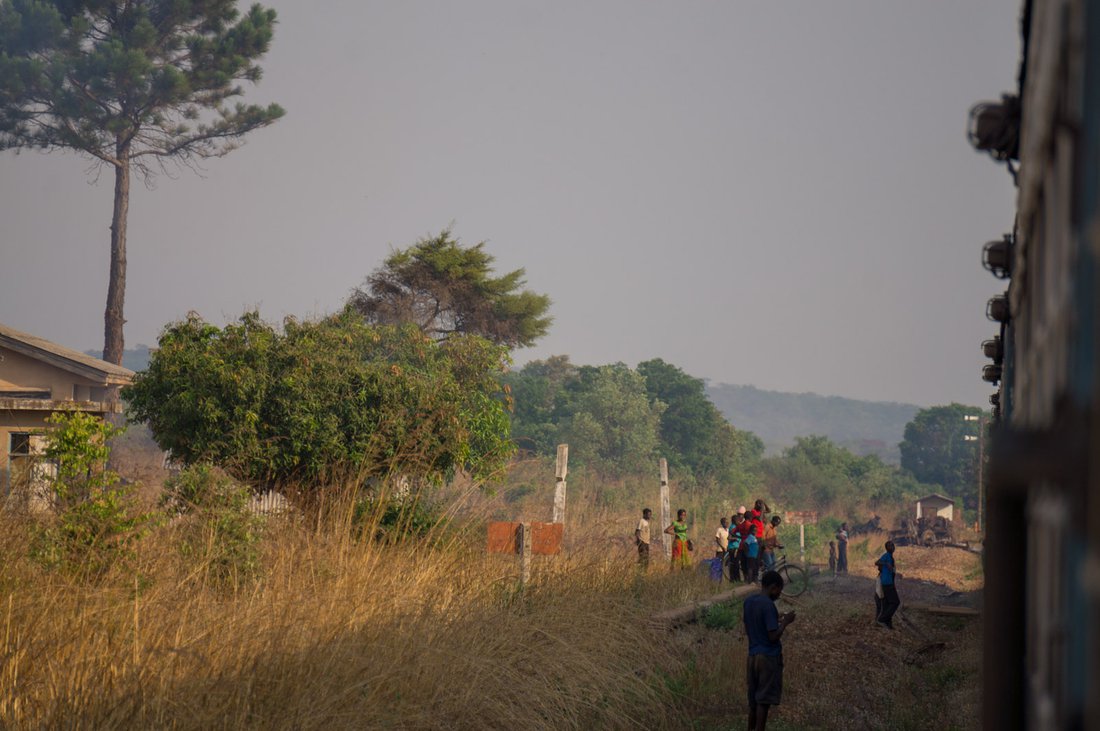
As were on the local train (rather than the 'express') we had about 50 stops to make on the way. These were usually only for a few minutes - long enough for people to get on the train and for vendors to walk down the track to sell snacks, fruit and vegetables.
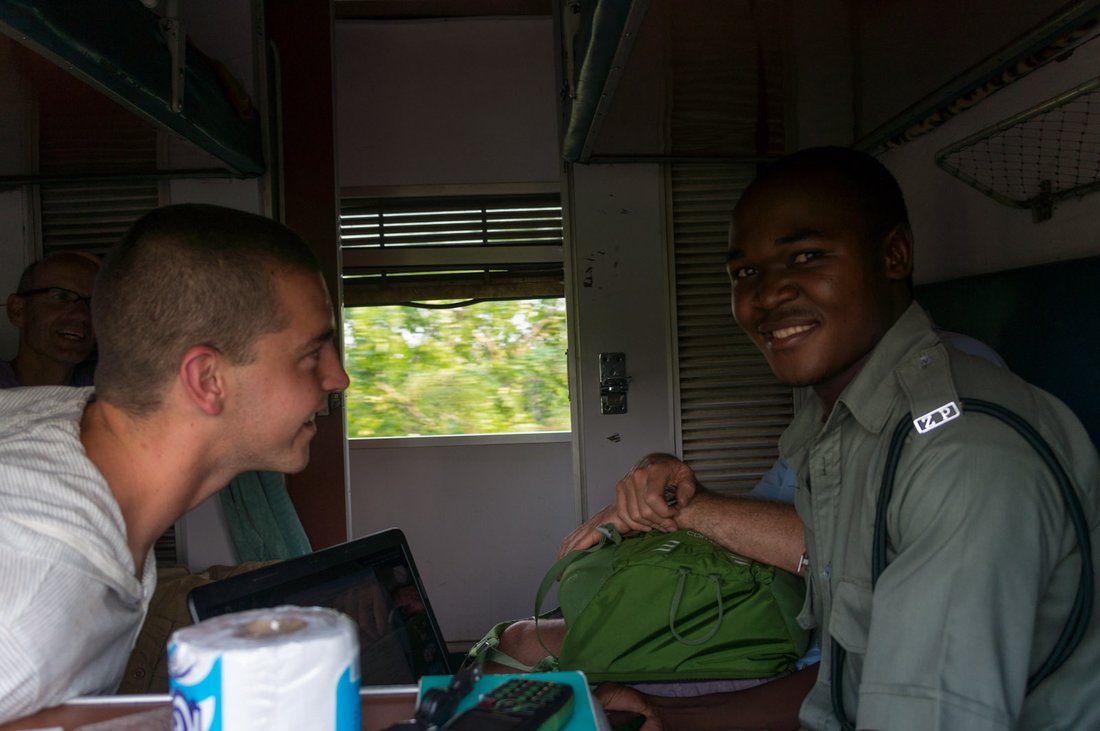
One of the Zambian Policeman on the train, Frederick Chambo, was very friendly and sat in our cabin for about an hour regaling us with stories of Zambia.
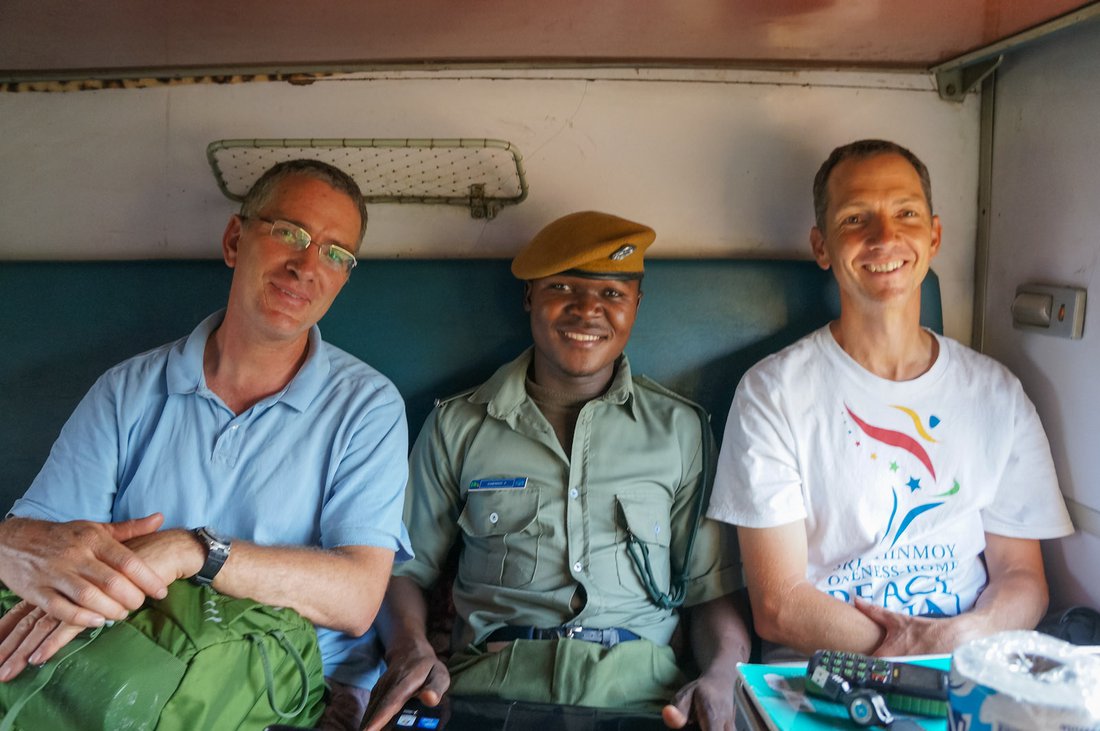
He loved hearing about the Peace Run and especially wanted to have his photo taken with Abhijatri and Balarka, which he later set as the desktop image on his laptop!
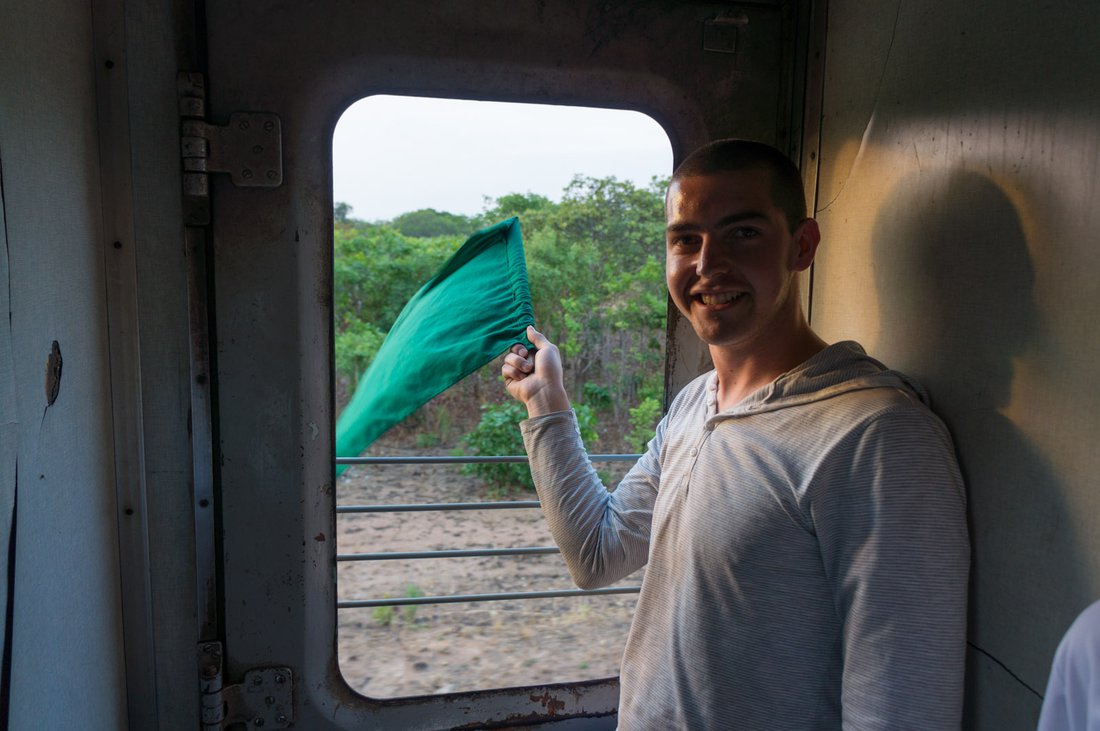
Michon spent some time at the back of the train and was soon deputised by the signalman to give the all clear for the train to depart.
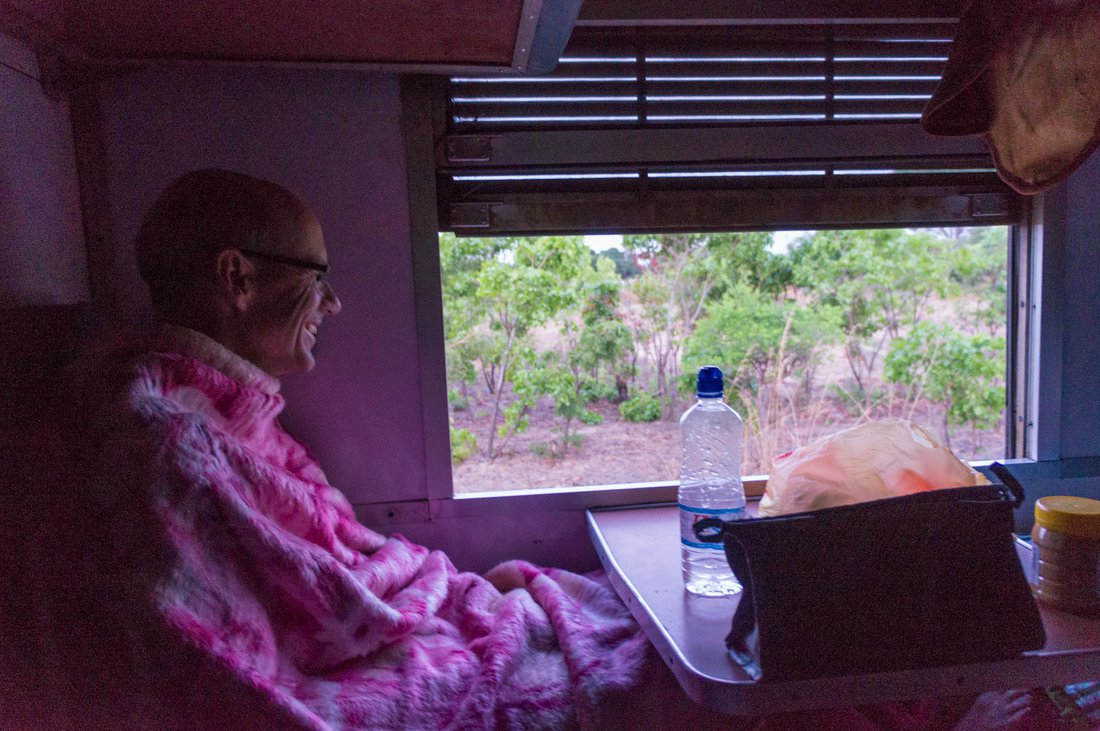
Early the next morning Dhiraja decided to follow the Basotho custom of wearing a blanket... this one was a lovely pink colour with floral designs!
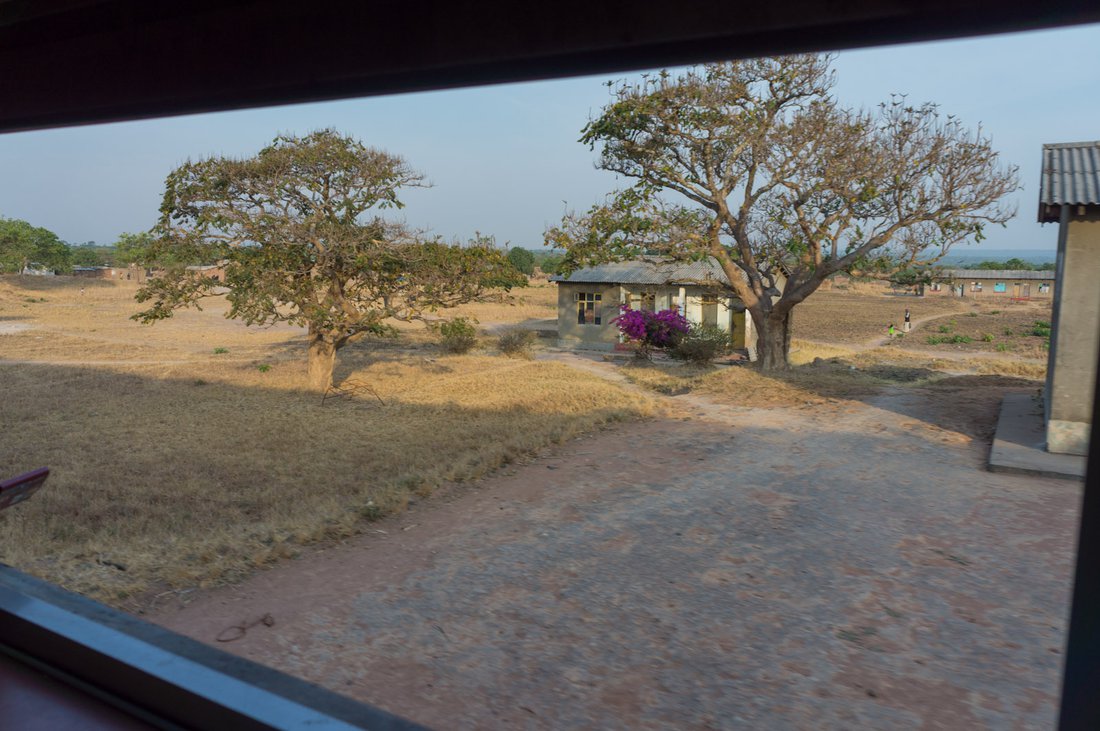
The view from the train was always interesting, but splashes of colour like this beautiful bougainvillia always attracted our attention.
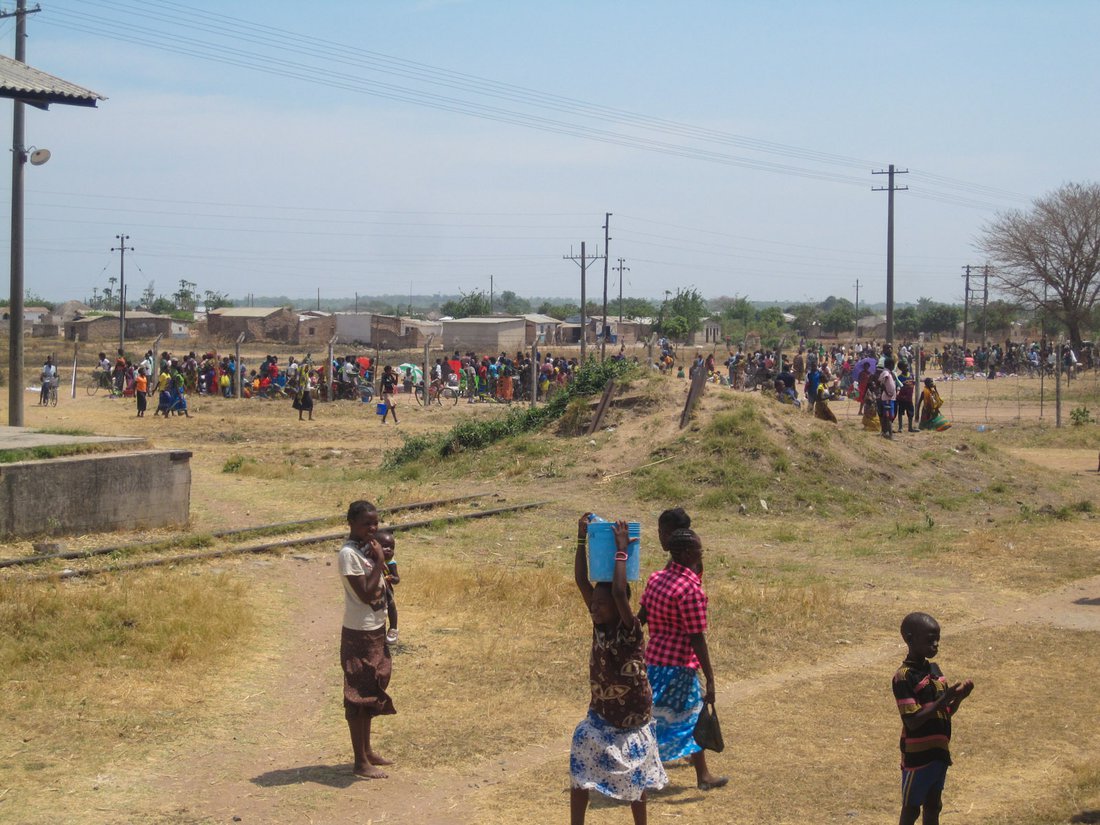
We noticed that this stop was taking a bit longer than usual, so two members of the team ventured out to have a look around, staying close to the train in case it started to pull away.
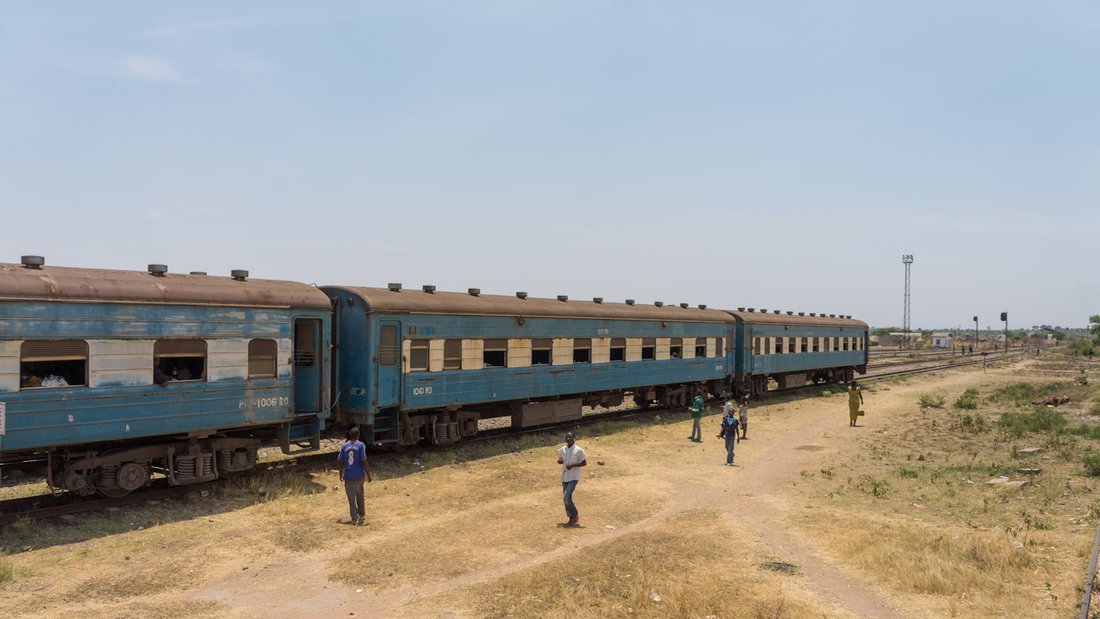
As they got up to the front of the train they realised they needn’t worry about missing the train, as our locomotive was gone! It seems that there had been a derailment further up the line and our locomotive had gone ahead to help clear it.
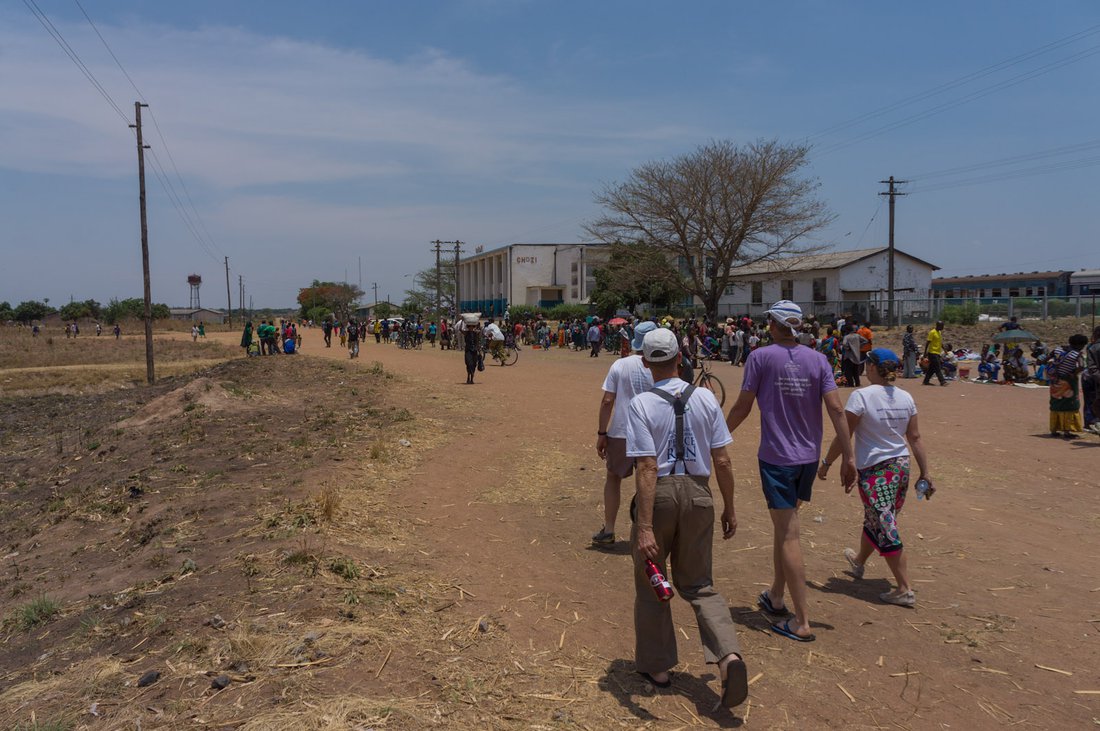
This would take about 4 – 5 hours. With this knowledge some of the team then decided to go for a bit of a longer walk into the village to see what was on offer.
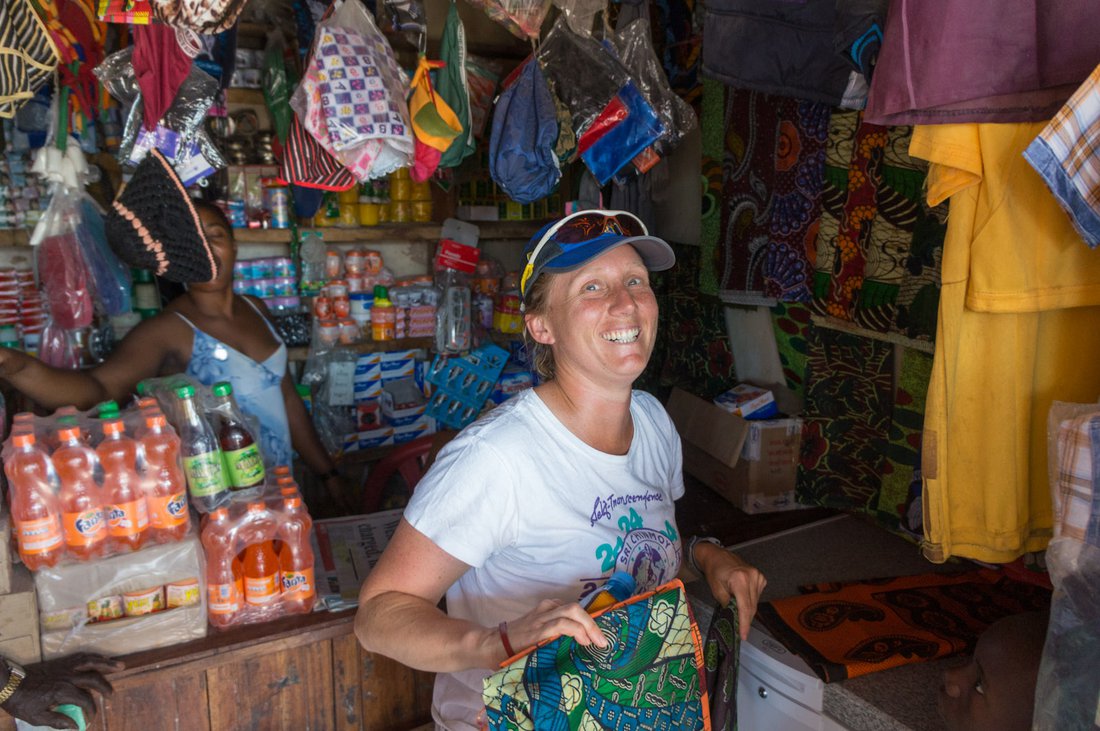
Although hesitant at first, Stacey soon found her shopping spirit and came away with a good selection of local clothes.
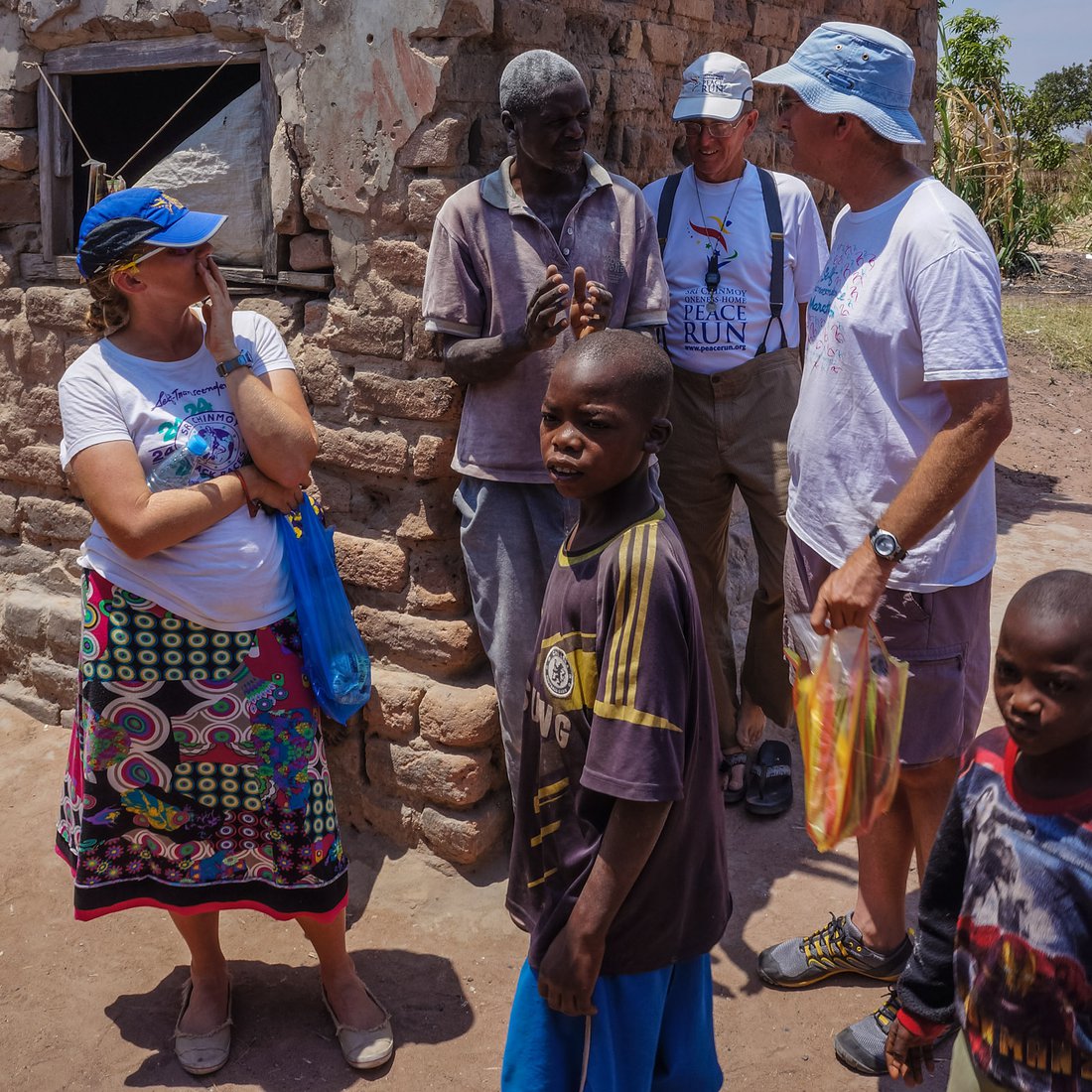
Abhijatri was excited to see a maize mill and after talking to the owner was at long last able to buy fresh ground wholemeal maize, from which he promised to prepare a meal for the team at the first opportunity. He happily carried his still warm maize with him as we continued to shop.
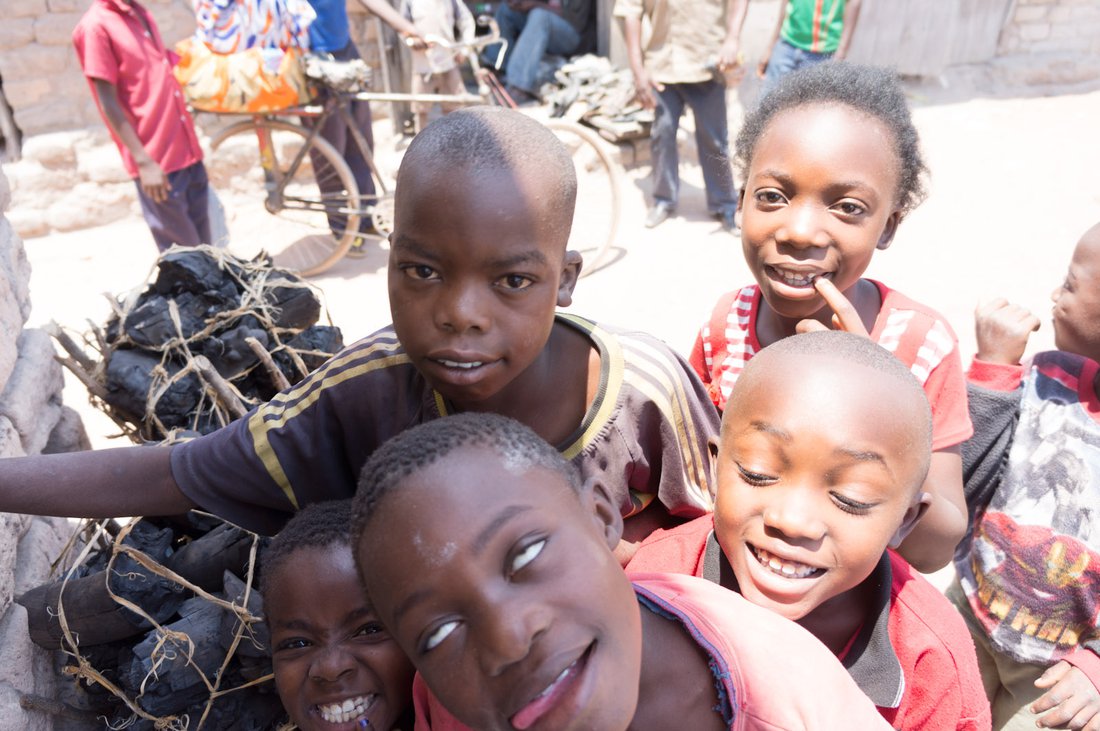
The local children were fascinated by our team and took every opportunity to impress us with various performances and feats.
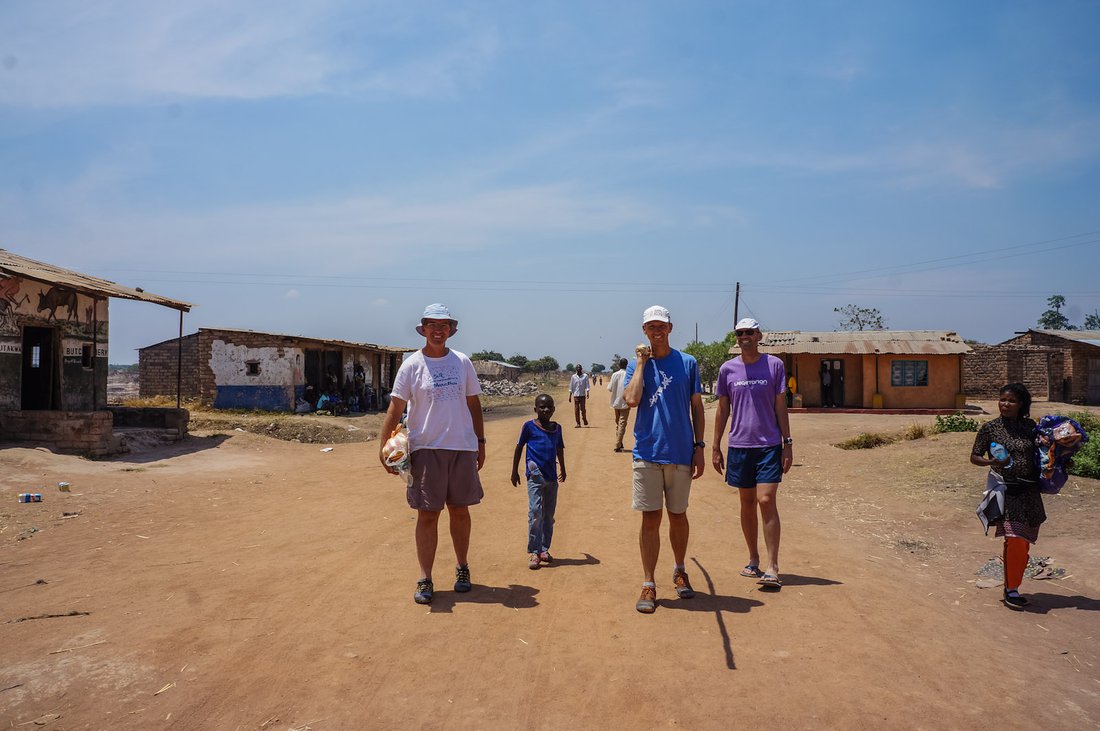
With most of our team not having tried fresh sugar cane, our two African team members bought a stick of it.
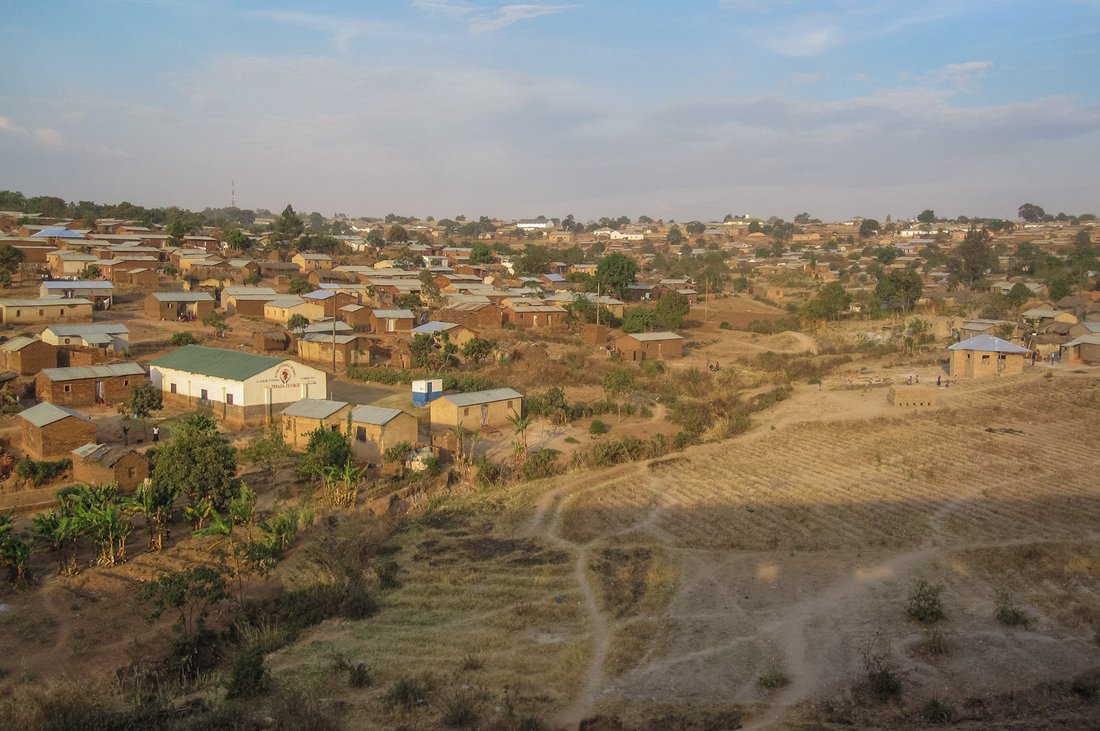
We made it to the Zambian border town of Nakonde at the end of the second day just as the sun was setting.
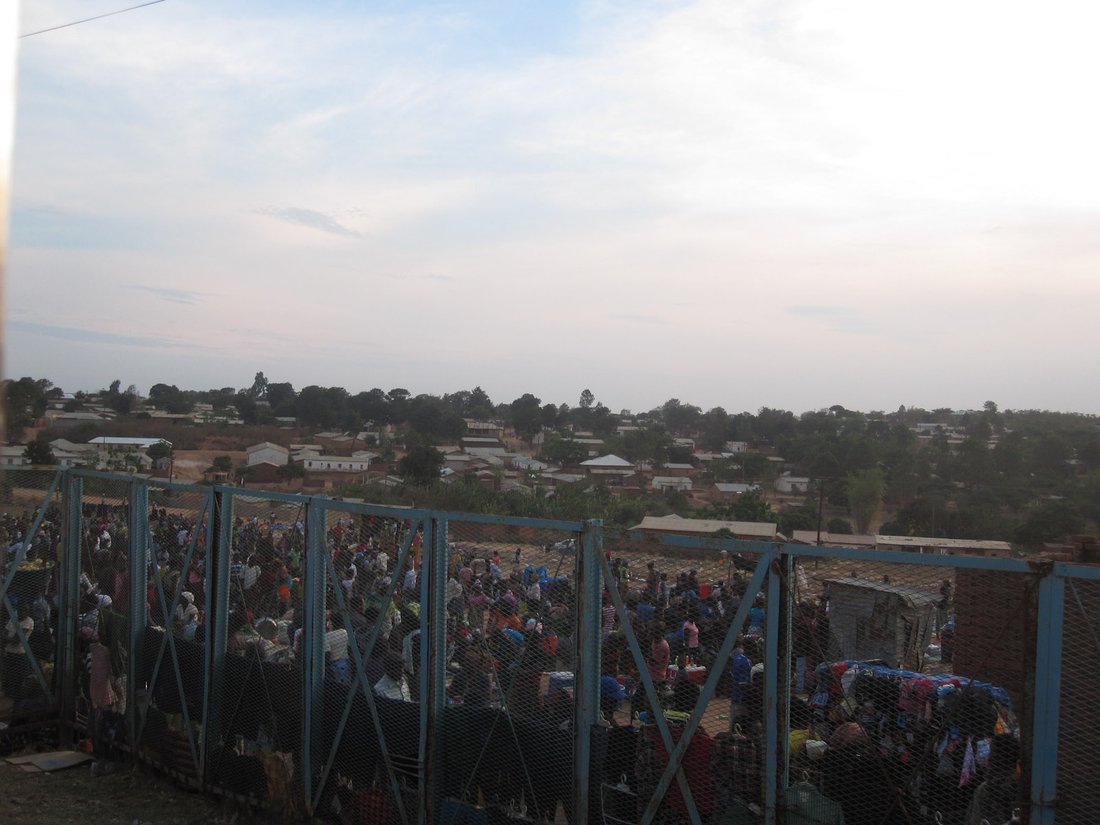
And after getting visas, having our passports stamped, and buying a Tanzanian sim card, we crossed into Tunduma on the Tanzanian side of the border.
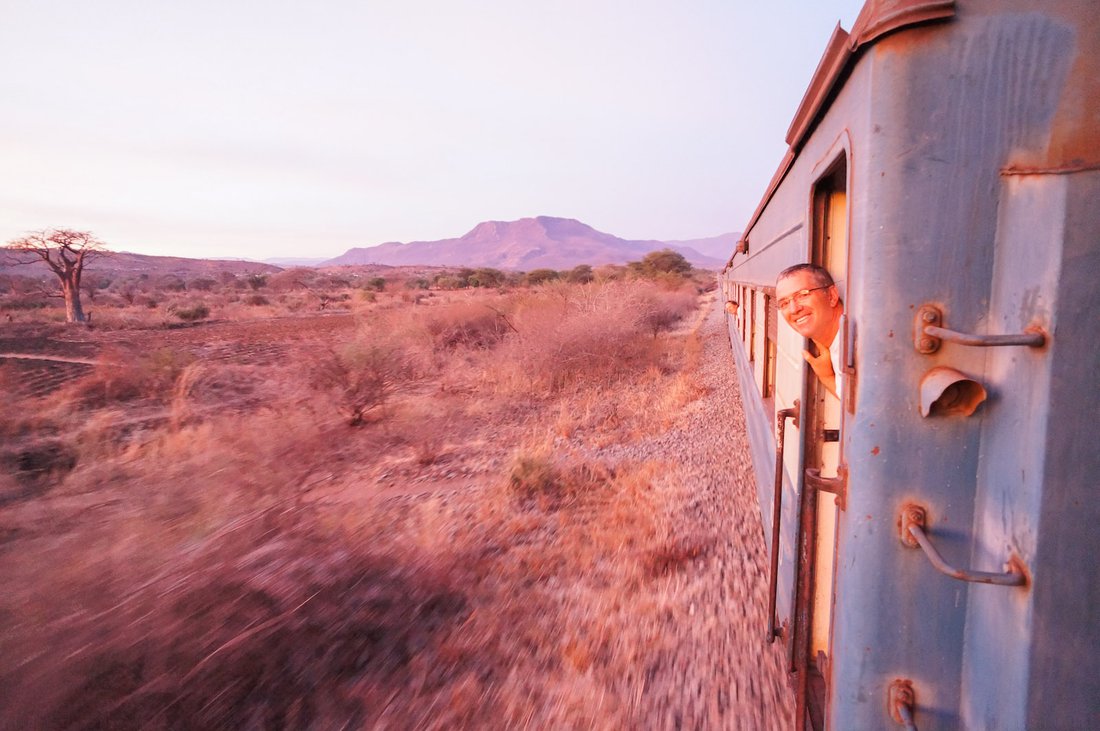
Some of the team were up at 4.45am to witness this miracle of natural light unfolding across the dry and baobab bejewelled landscape of south-western Tanzania.
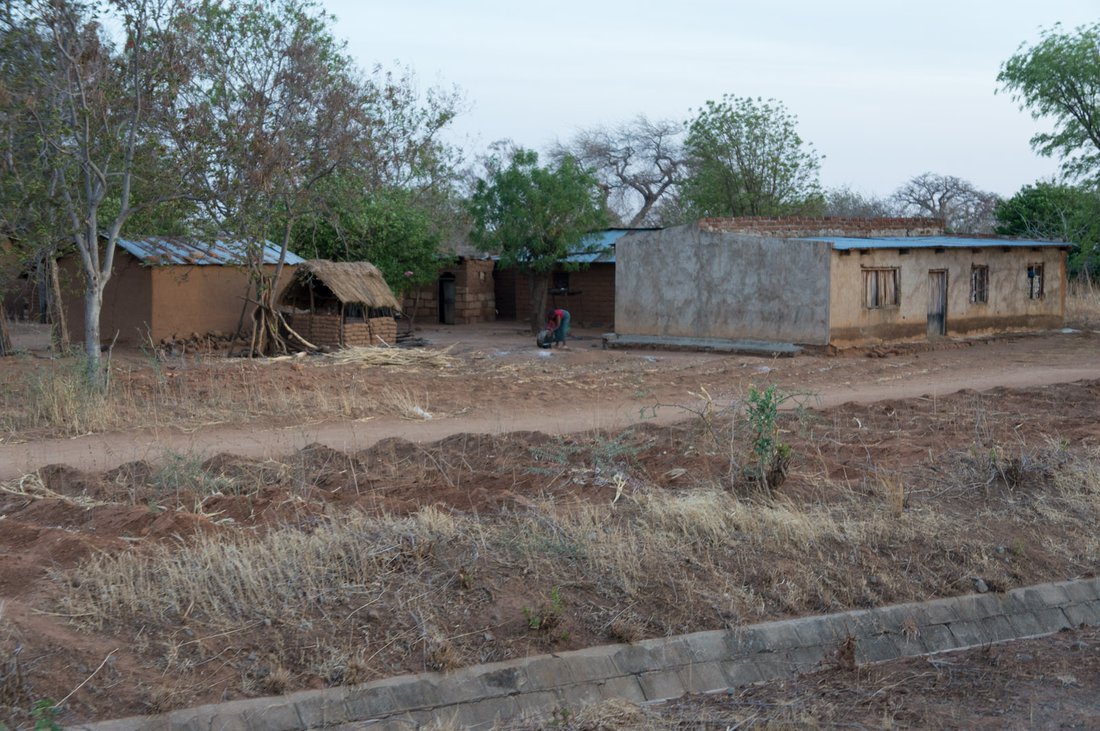
The houses and the landscape in this part of Tanzania were markedly different from Zambia, which helped renew our enthusiasm for the journey after nearly 40 hours on the train.
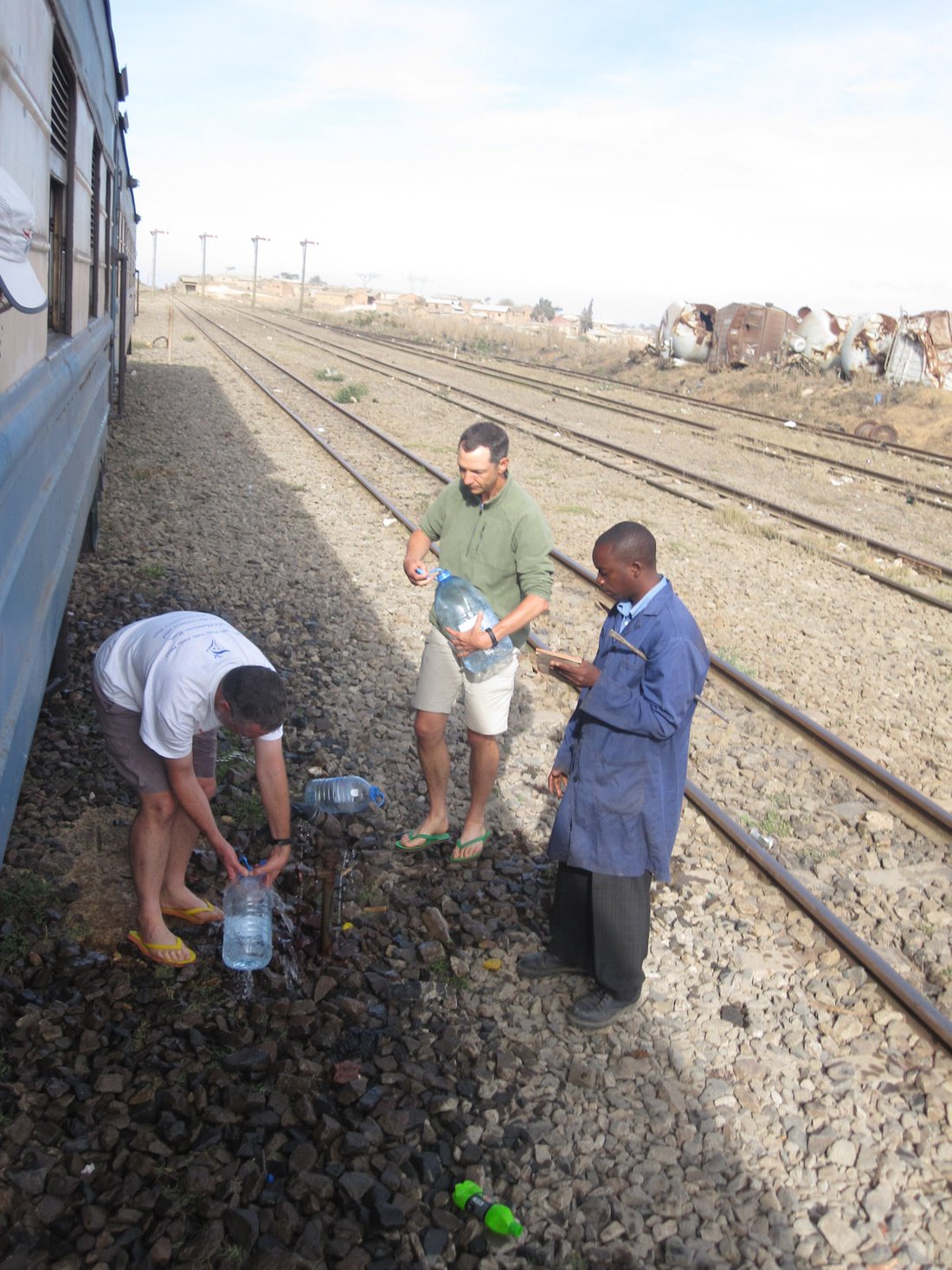
At Makambako, we again had a longer stop, as the pneumatic piping on one of the carriages needed repairs. This gave some members of the team enough time to fill up our water containers (that we would later use to shower with) ...
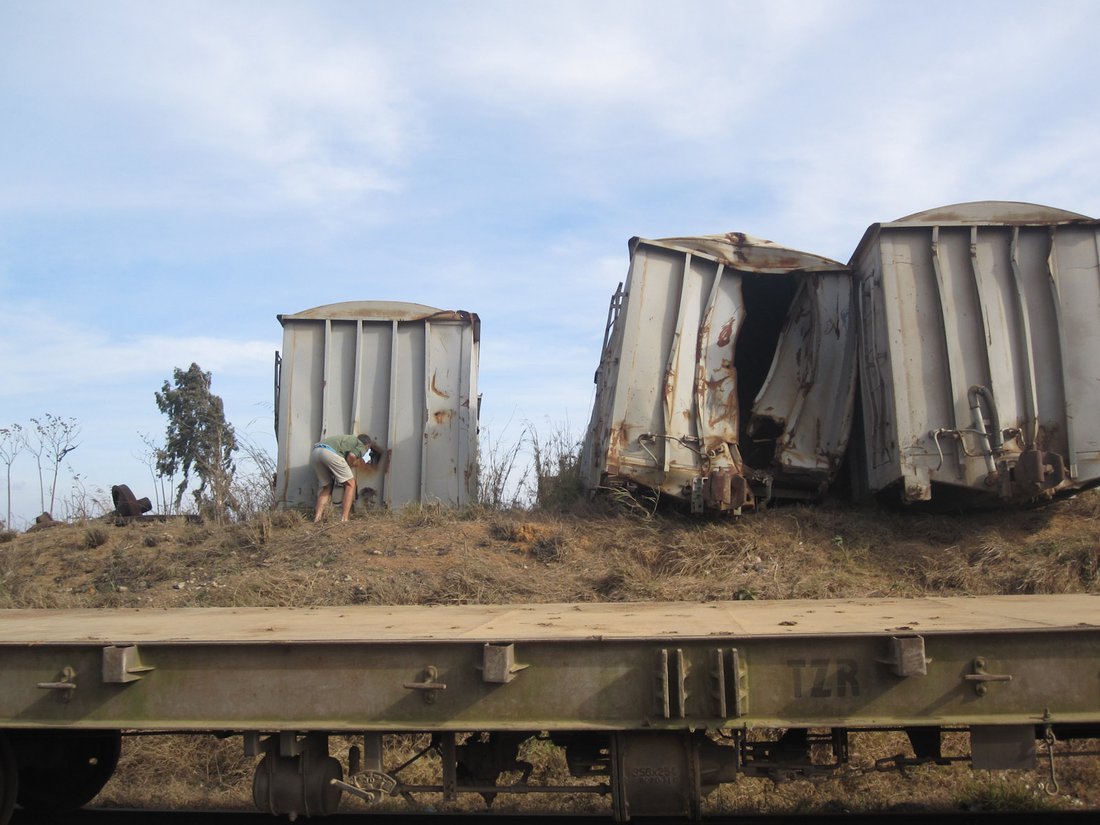
Balarka went on quite an adventure, after well over 30 hours on the train he was happliy exploring the side of the tracks.
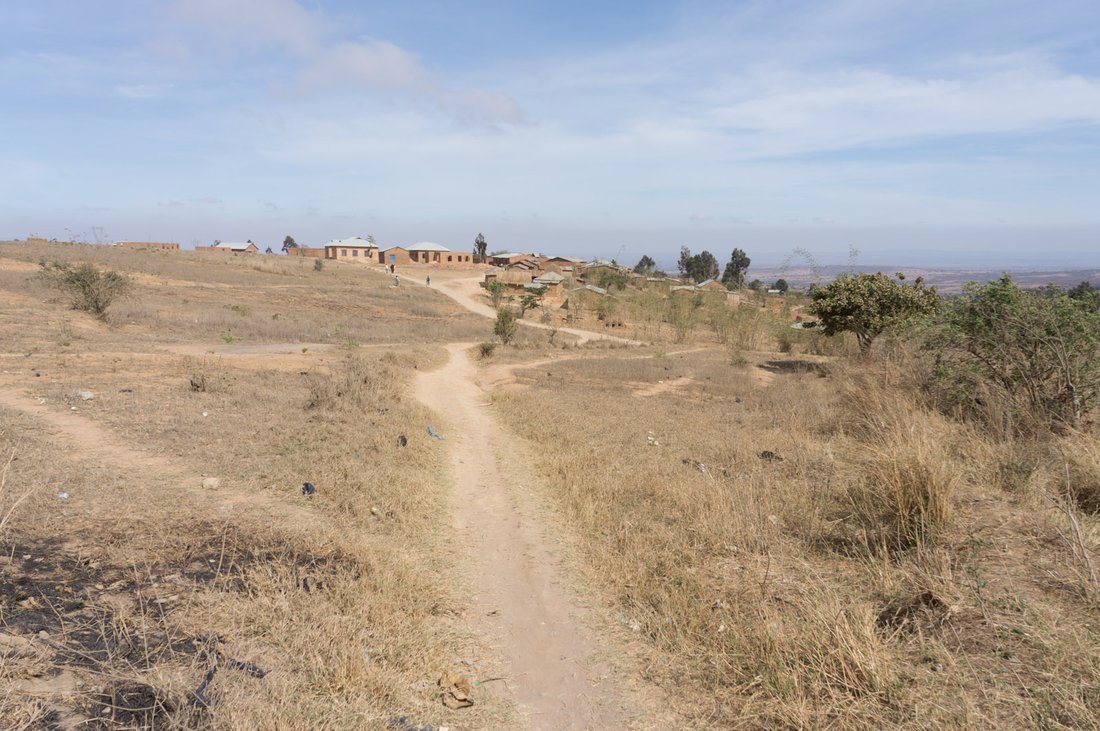
The surrounding countryside was criss-crossed with footpaths, many of which we were quite tempted to explore.
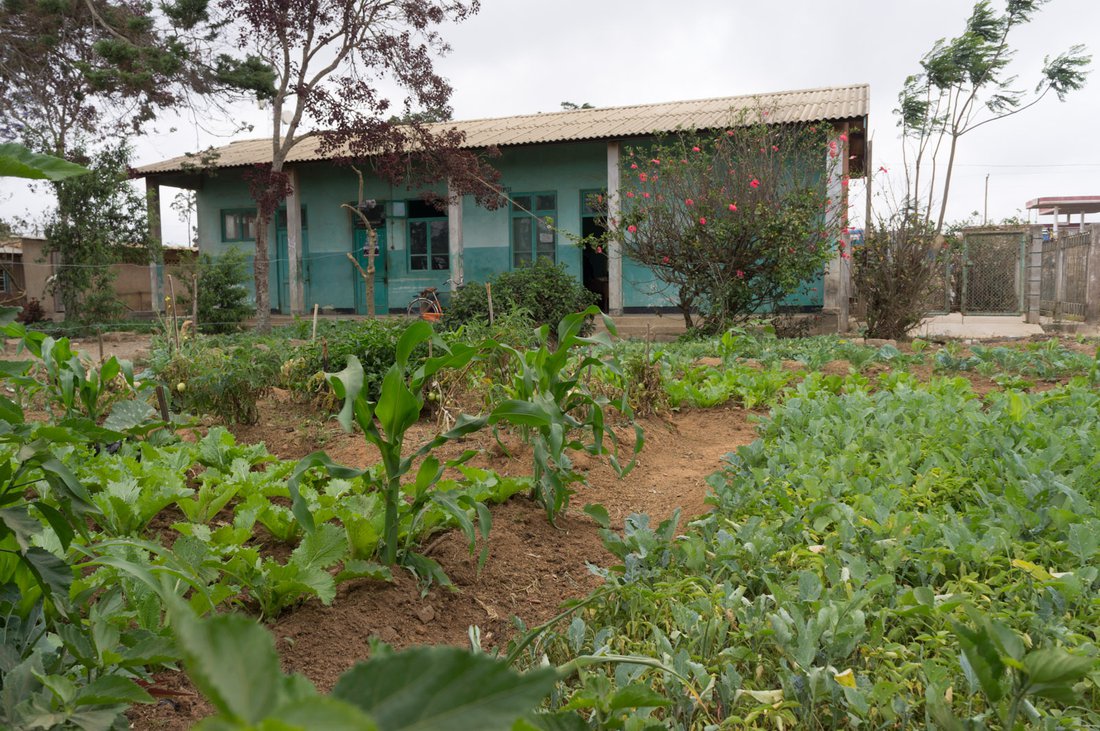
This scene, with a verdant vegetable garden right beside the platform and a rusty bicycle on the verandah, gave us a strong impression of a place of simplicity and peace far from the technological frenzy of the western world in which most of the team members live.
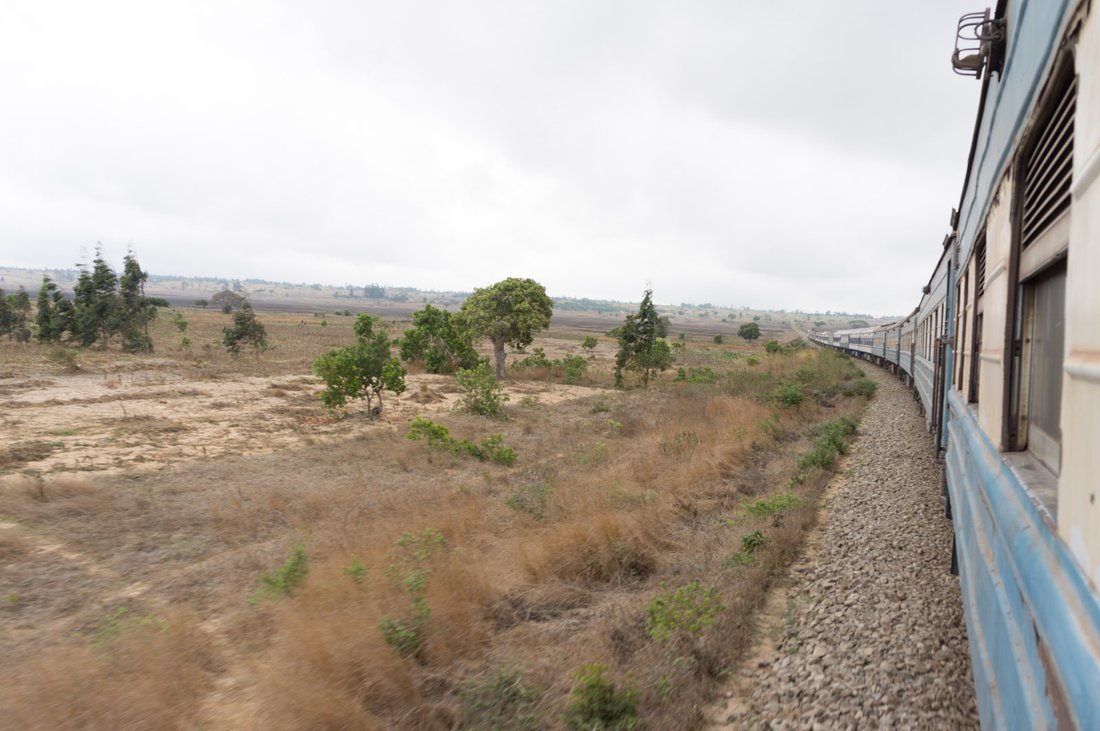
After a delay of some hours, we finally got underway and were very relieved to hear the soothing clackety-clack of the train wheels rolling along the rails once again.
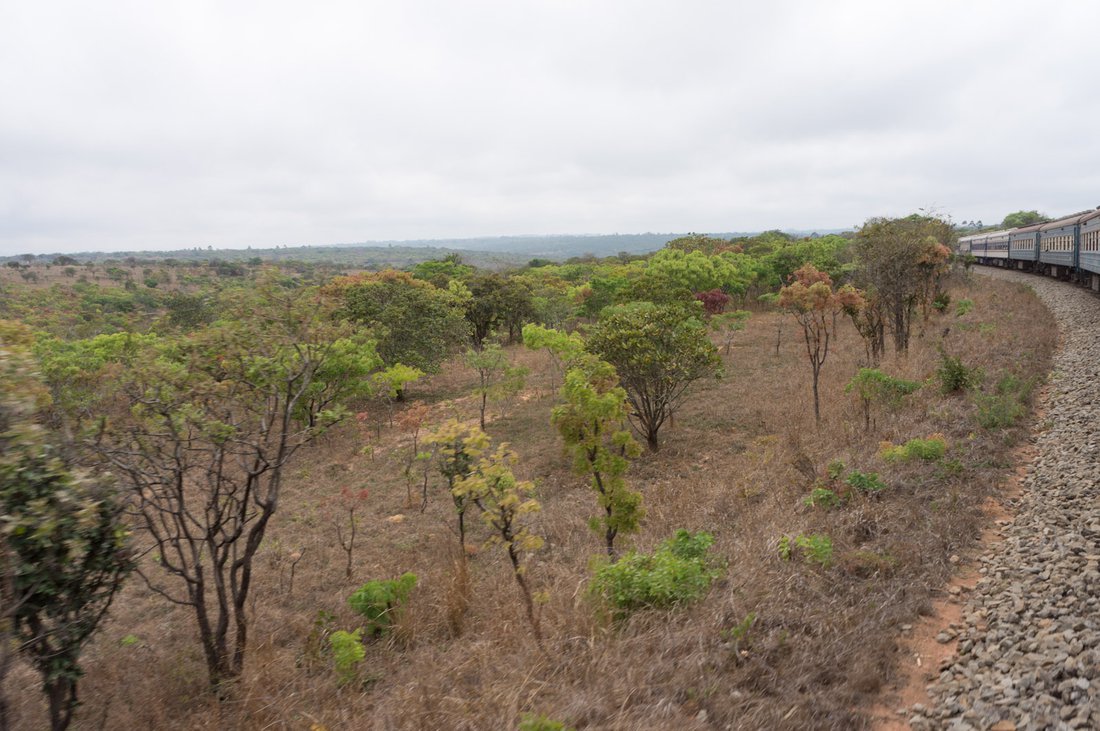
As we dropped down from the 1000m+ high plateau where we had seen baobab trees earlier in the day, the vegetation changed to broad-leafed woodland, very similar to the Msasa woodland of Zimbabwe.
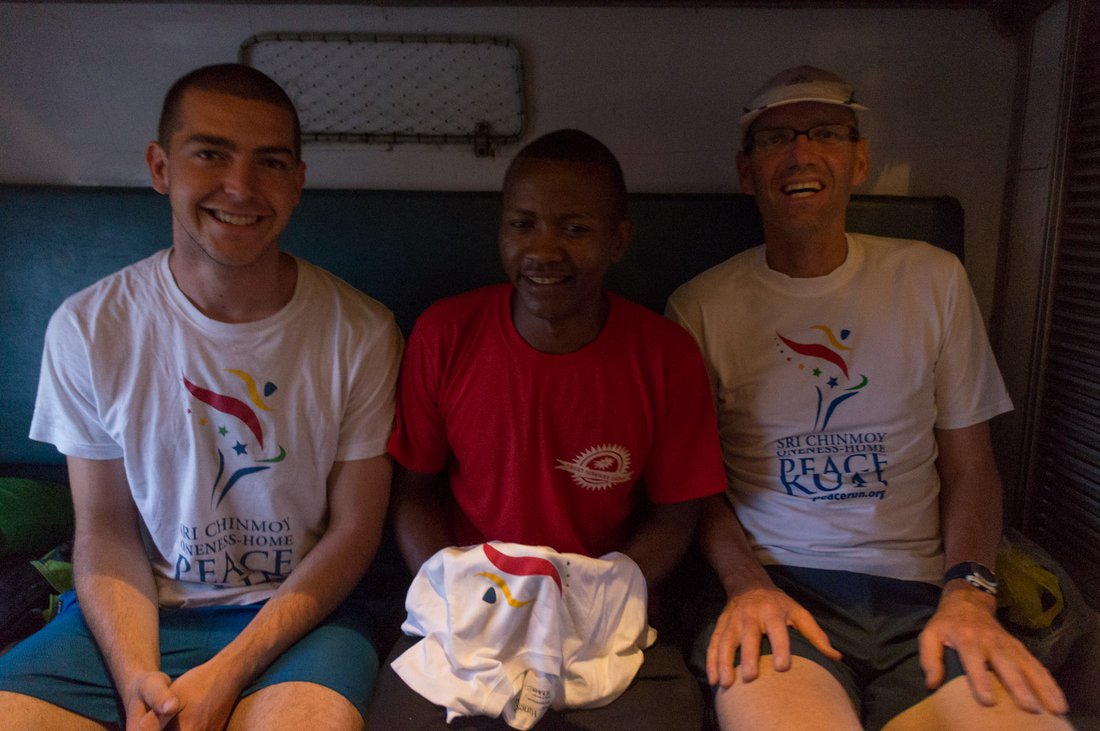
Our trip was joyfully interrupted by Baba, one of the staff on the train, who set aside an hour to give us a personalised lesson in kiswahili. We drilled him for all sorts of useful phrases that we thought we might need over the subsequent few days, only to be presented with a written examination paper some hours later! Fortunately, we managed to pass with just over 50%! The most useful phrase we learnt was, "amani moyoni", or "peace in the heart", which we used frequently when speaking to children at the schools we visited in Dar es Salaam.
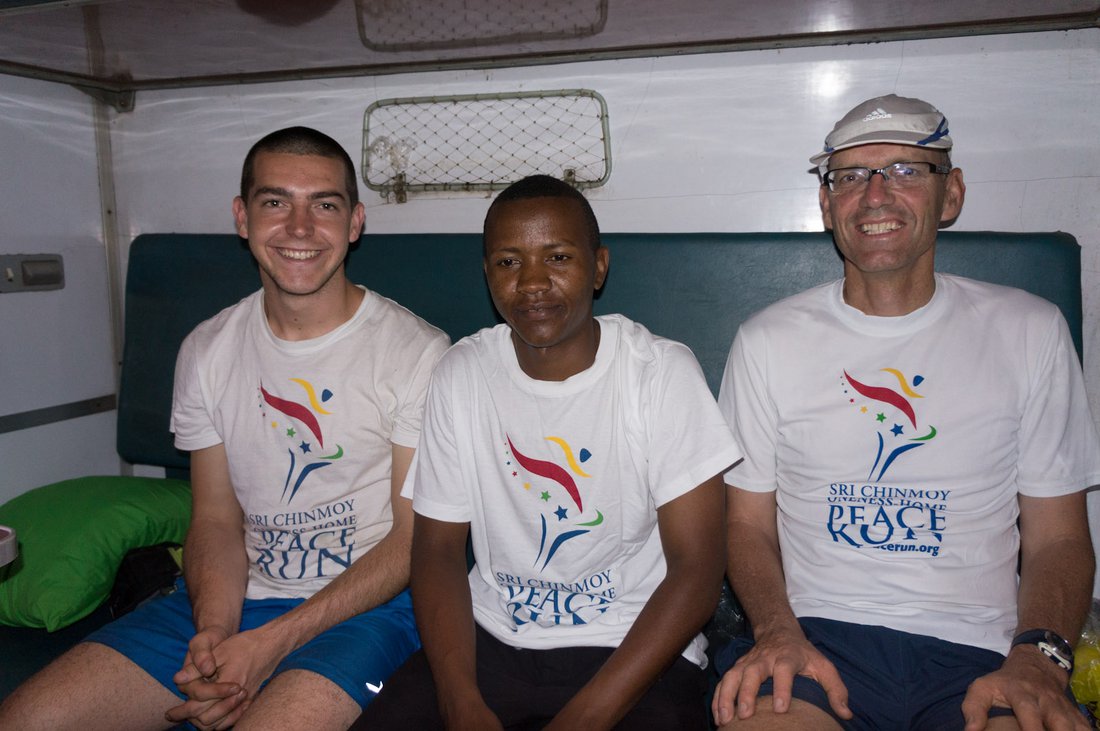
To show our gratitude to Baba, we presented him with a Peace Run T-shirt and made him an honorary member of our team.
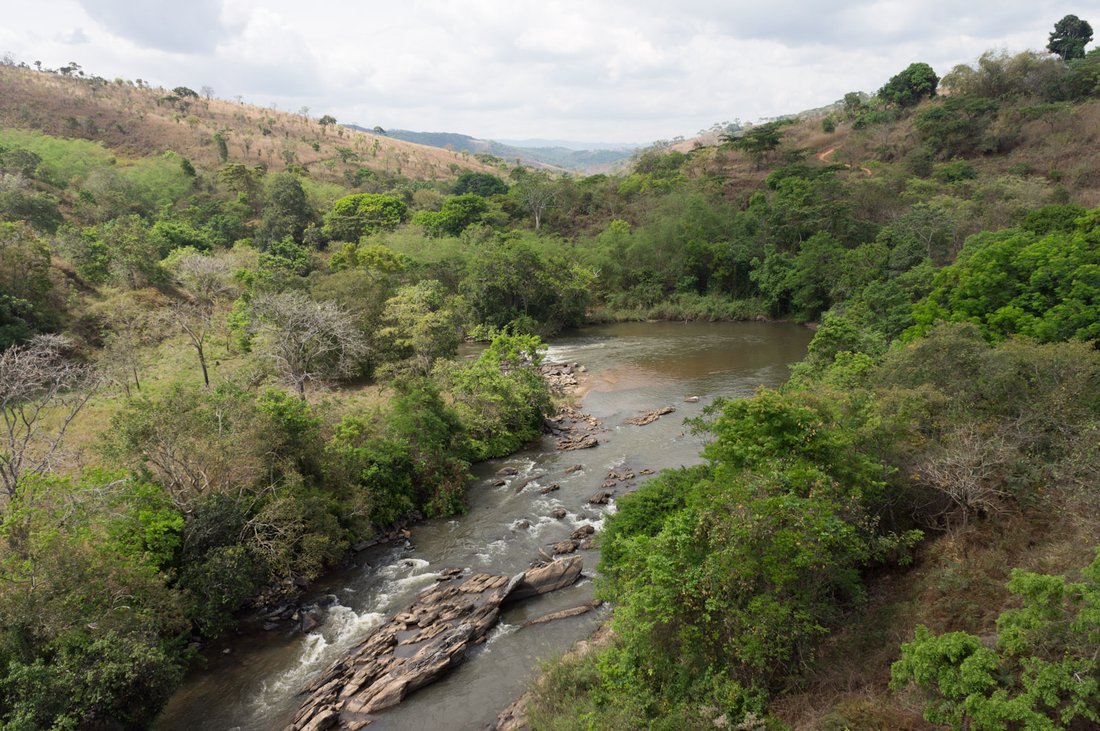
The sight of this river was a great relief after the extreme dryness of the landscape we had passed through since arriving in Tanzania.
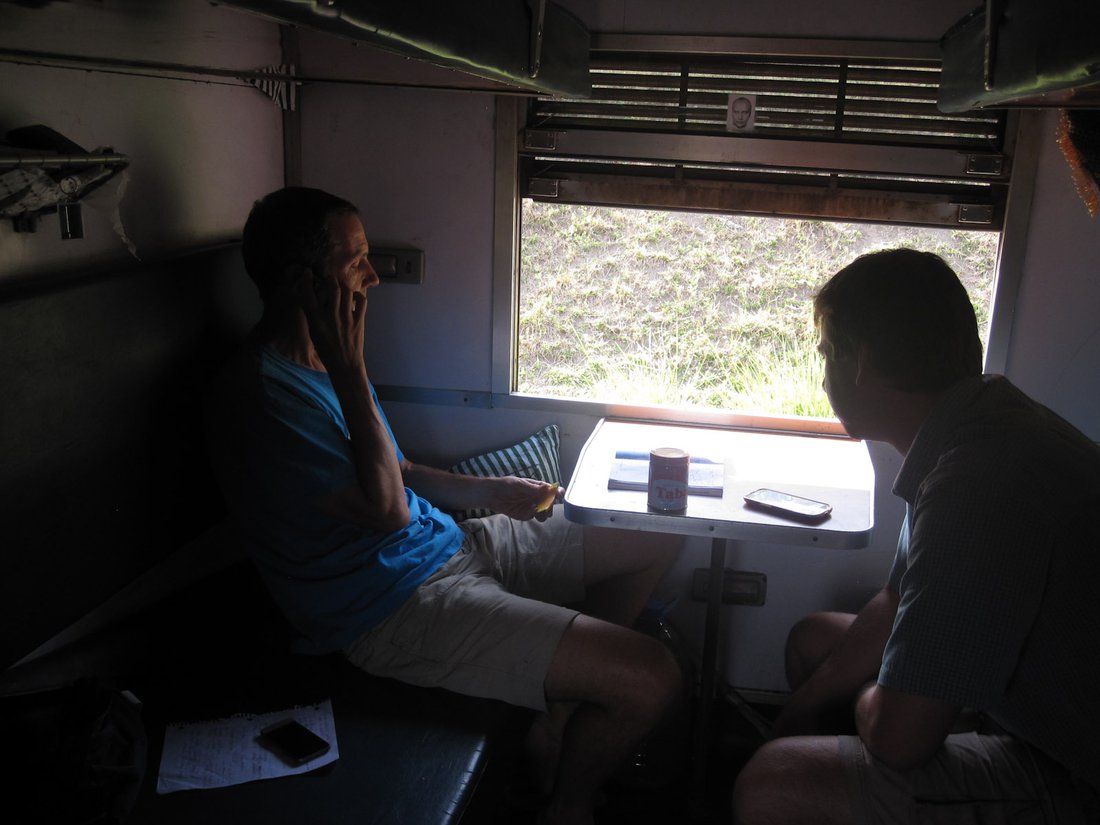
By the time we had descended to the lowlands, still several hundred kilometres from Dar, it became painfully clear to us that there was a strong probability that our train would not arrive before our first school appointment the following morning. As soon as we had cellphone reception, we got in touch with our local organiser in Dar, Amina, to find out whether getting off the train and catching a bus would be a better option.
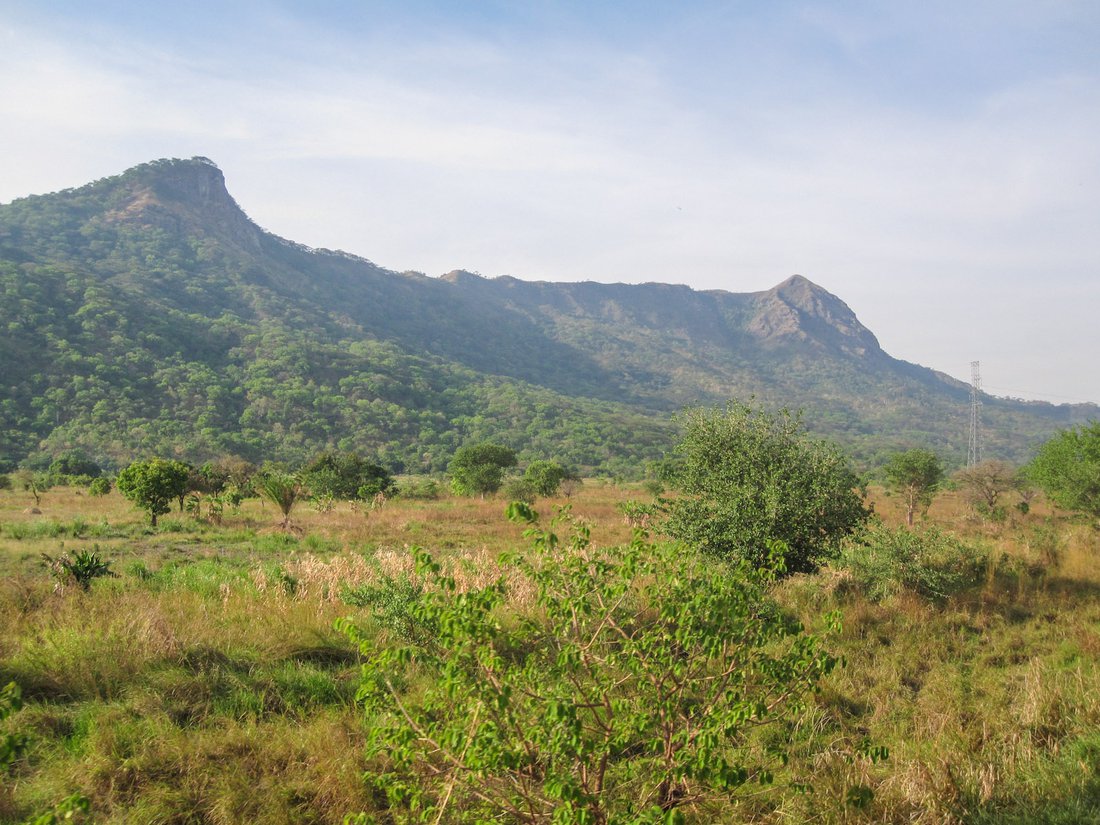
Fortunately, as the landscape flattened out, our speed began to pick up and for sometime after those initial frantic calls, we averaged around 70 km/hr.
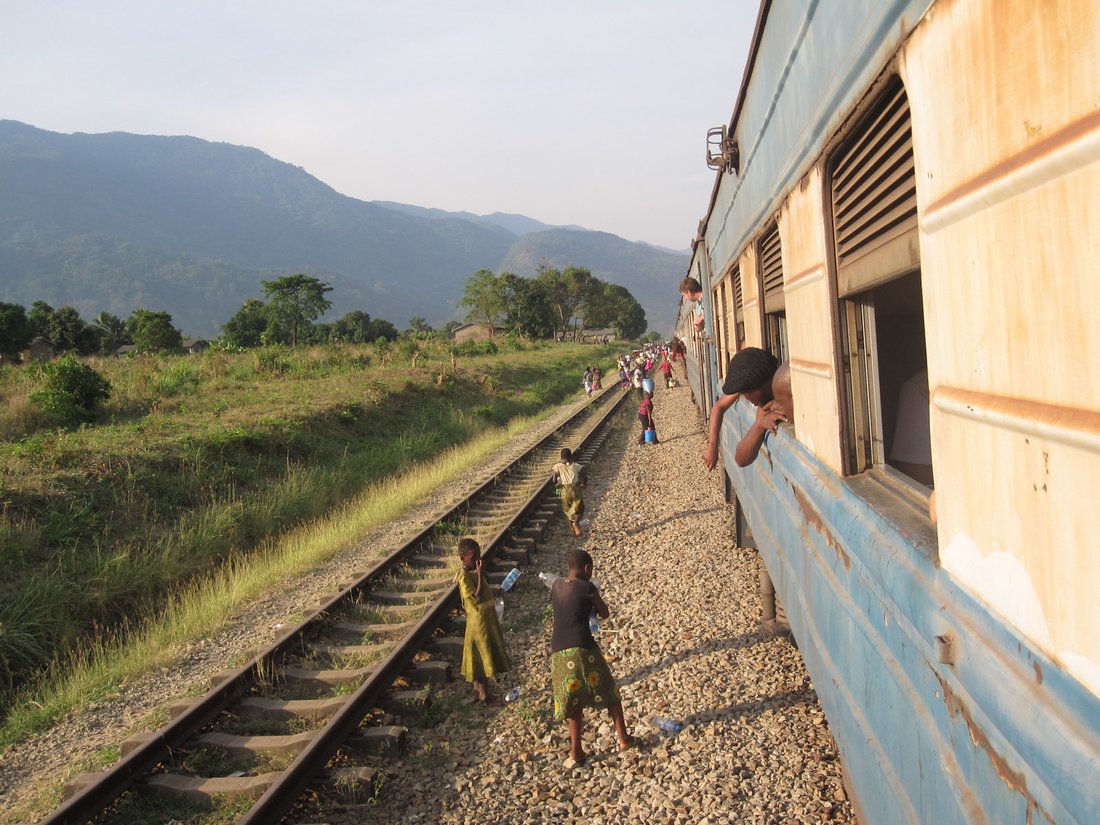
After receiving ETA's ranging from 04h00 hours to 12h00 hours (on Monday) from the various staff members on the train (the scheduled arrival time was 14h00 hours on Sunday), two members of the team were eventually sent forward to find out from the driver himself what time we could expect to arrive. We were all relieved by his emphatic assurance that we would be in Dar in time for our first appointment.

However, there we still many unexpected delays, such as this one where Abhijatri practiced his Swahili on some local children.
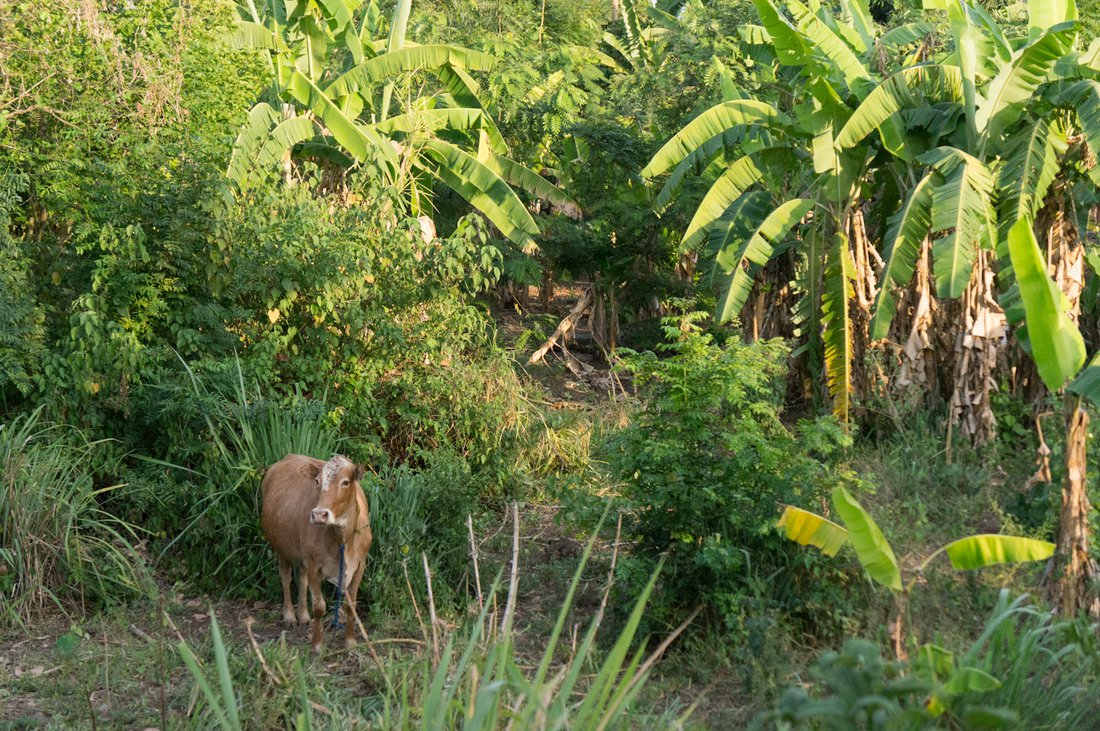
The journey was broken by many memorable sights, such as this cow, who voiced her annoyance at being disturbed by the train, much to the delight of Dhiraja, who has a particular interest in cows.
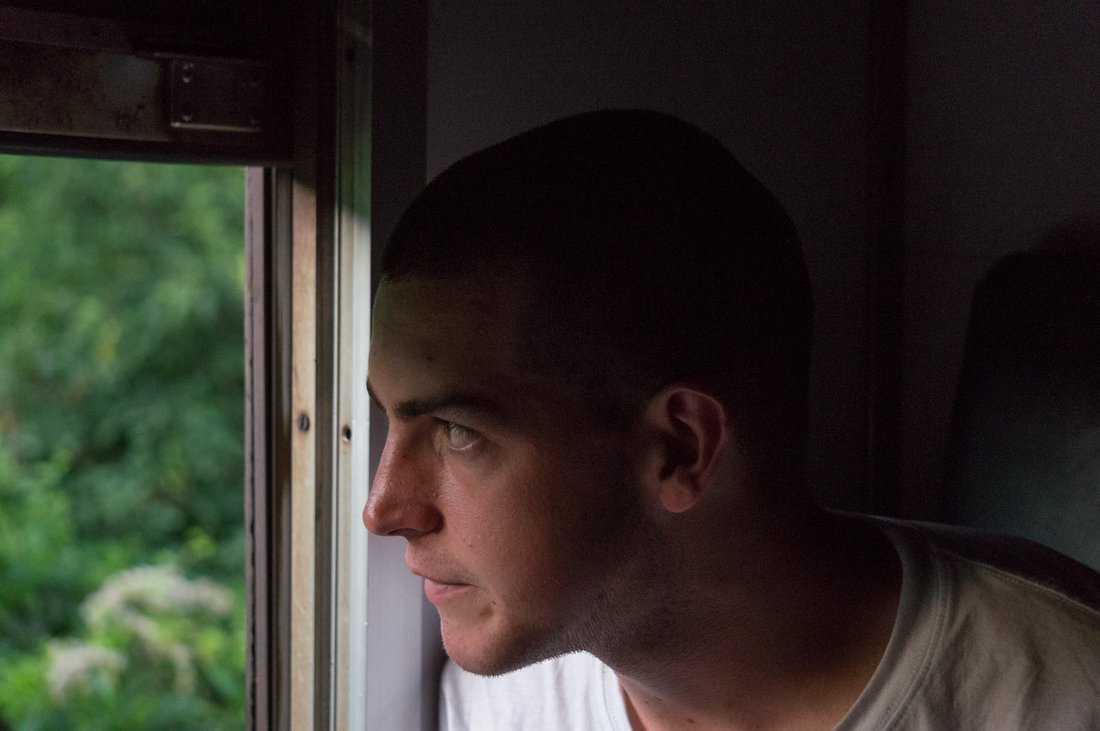
Despite our concern over the delays, this didn't dampen our interest in the scenery and local people along the way.
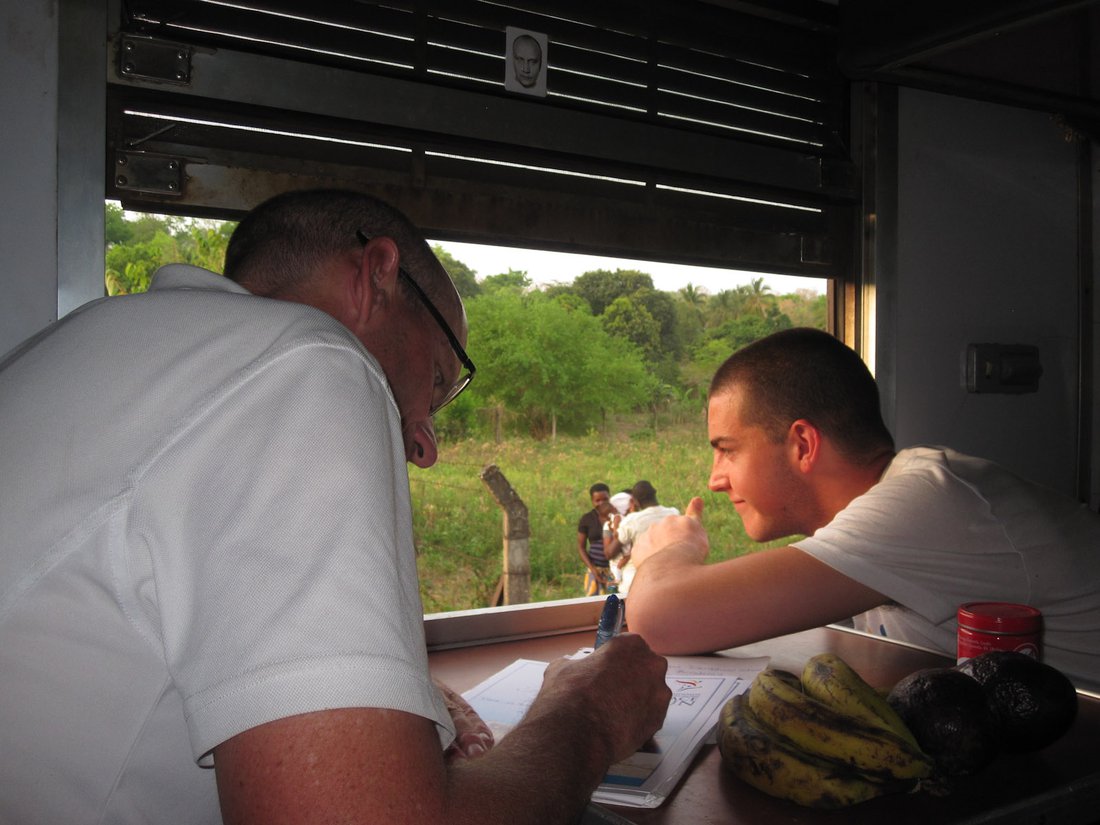
As we drew nearer to Dar, we had to get ourselves ready for the appointments of the day. Here Dhiraja completes Certificates of Appreciation for the first few schools.
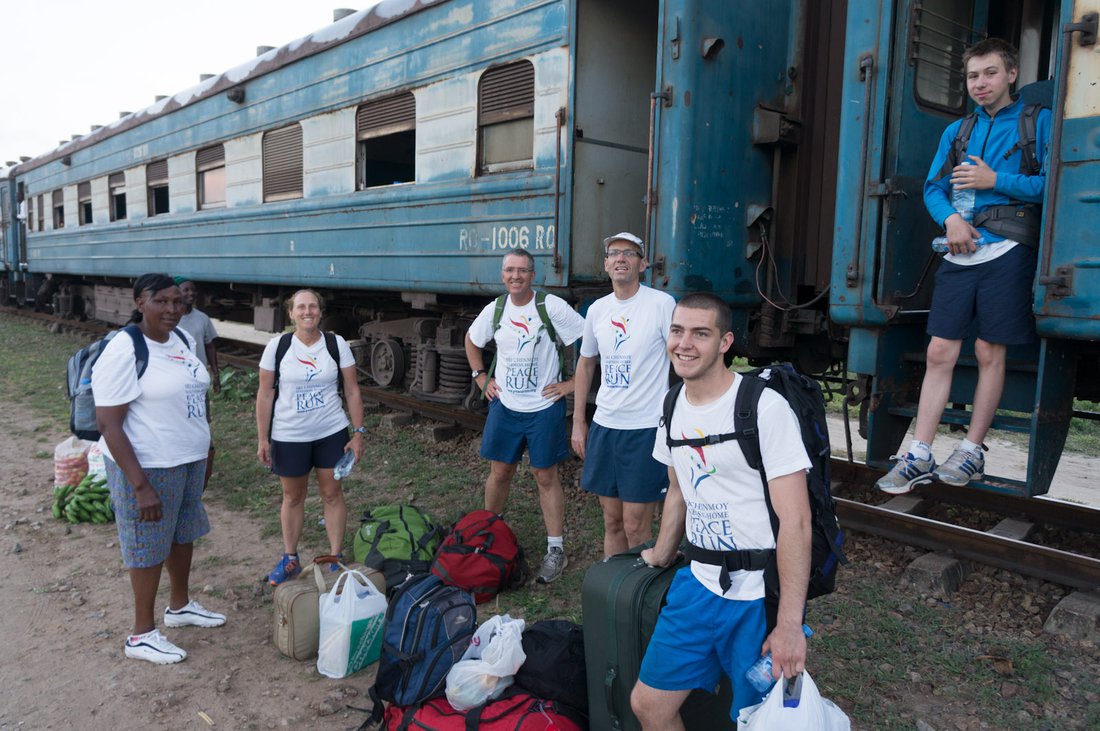
At last we arrived in Dar at 06h00 hours on Monday morning - 16 hours later than our scheduled arrival time - but thankfully not late enough to affect our morning itinerary. We were all relieved and grateful to be back on terra firma once again.
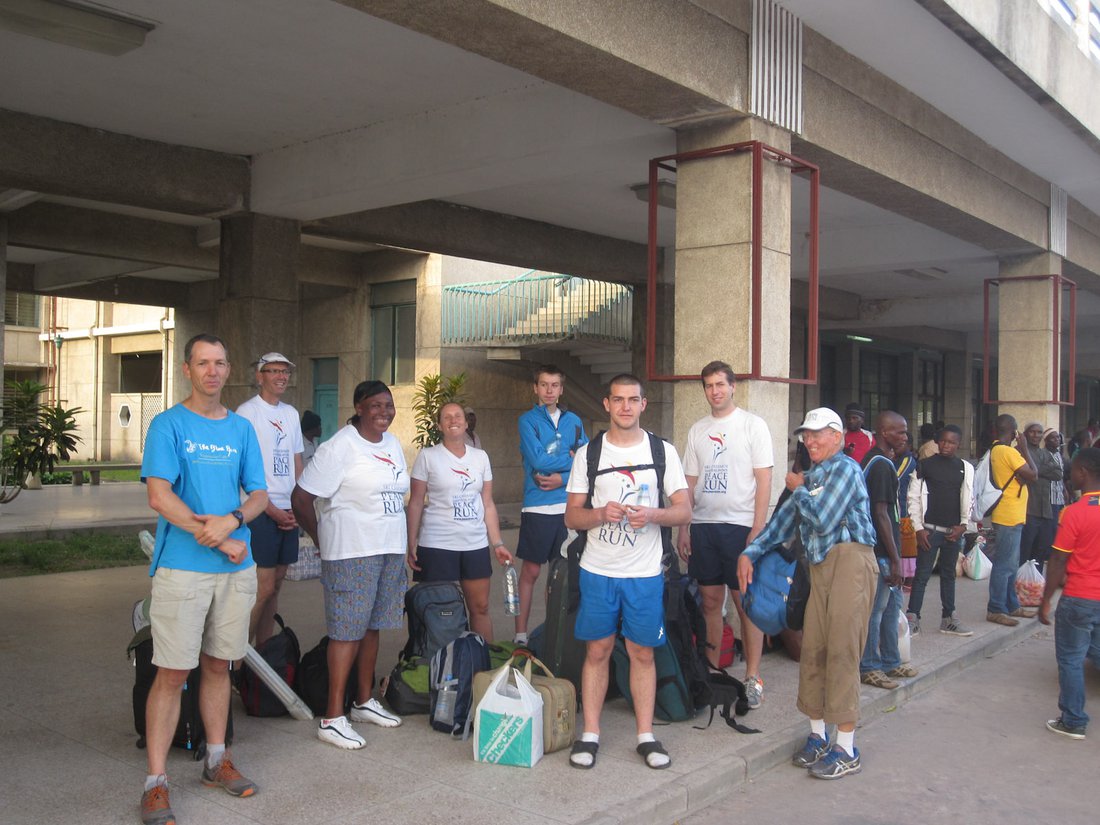
However, finding a taxi and negotiating a reasonable fare turned out to be more of a challenge than we had expected.

